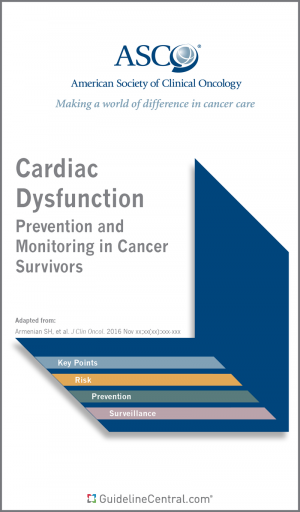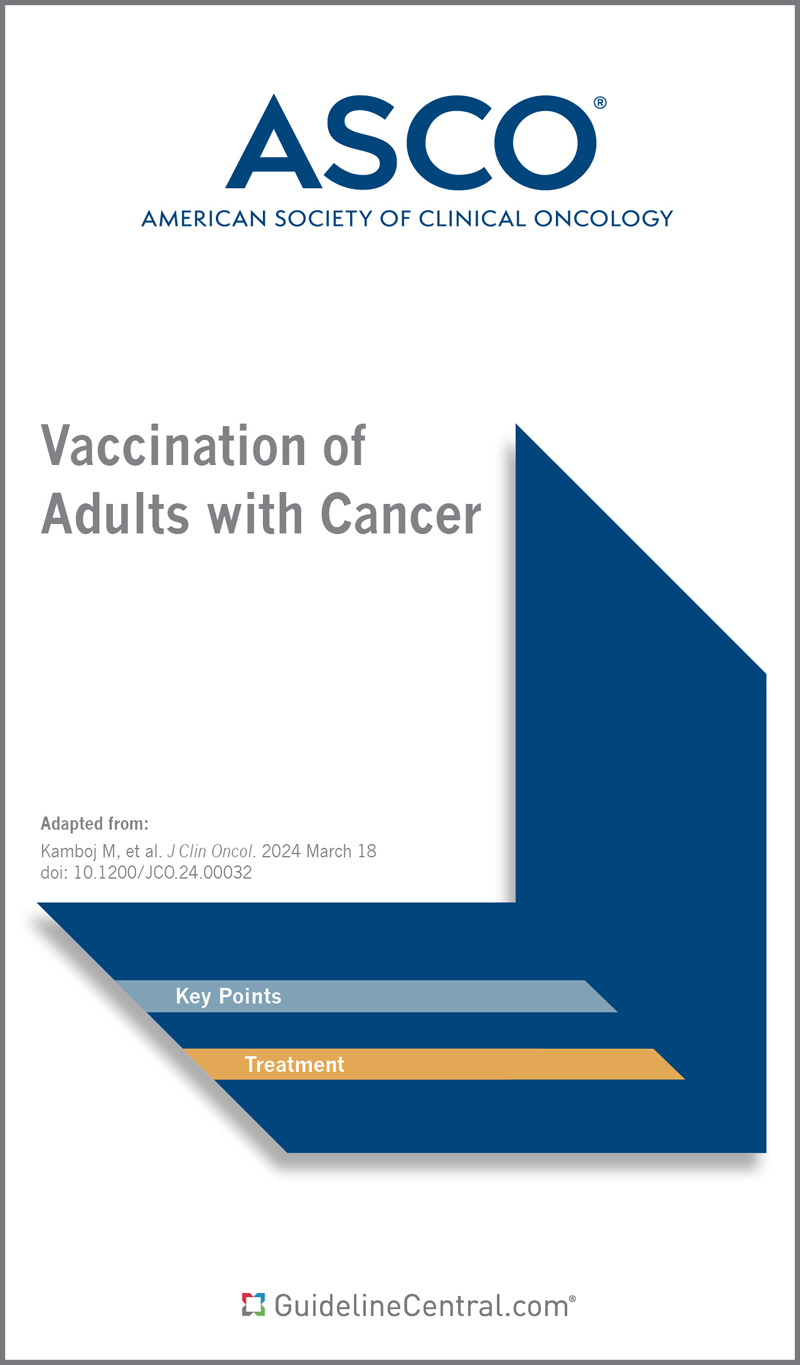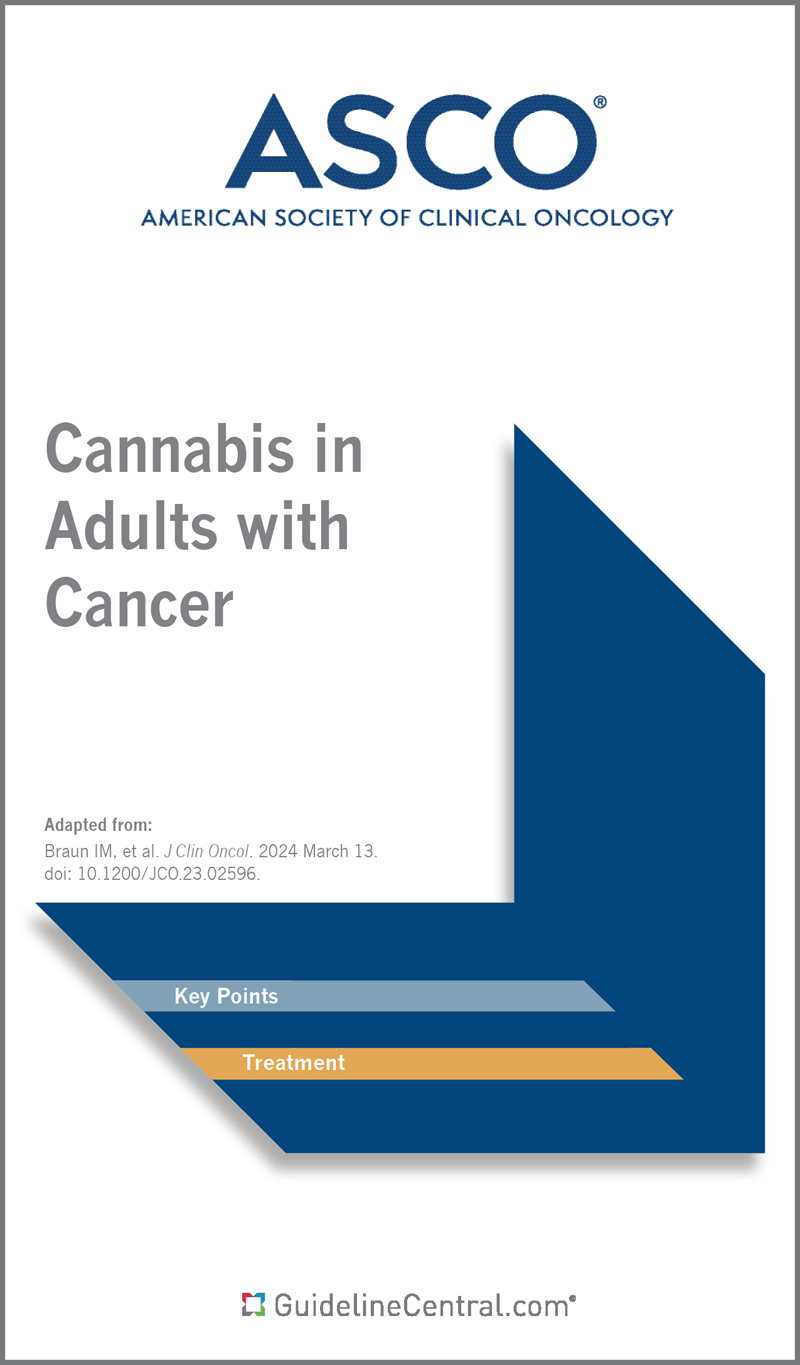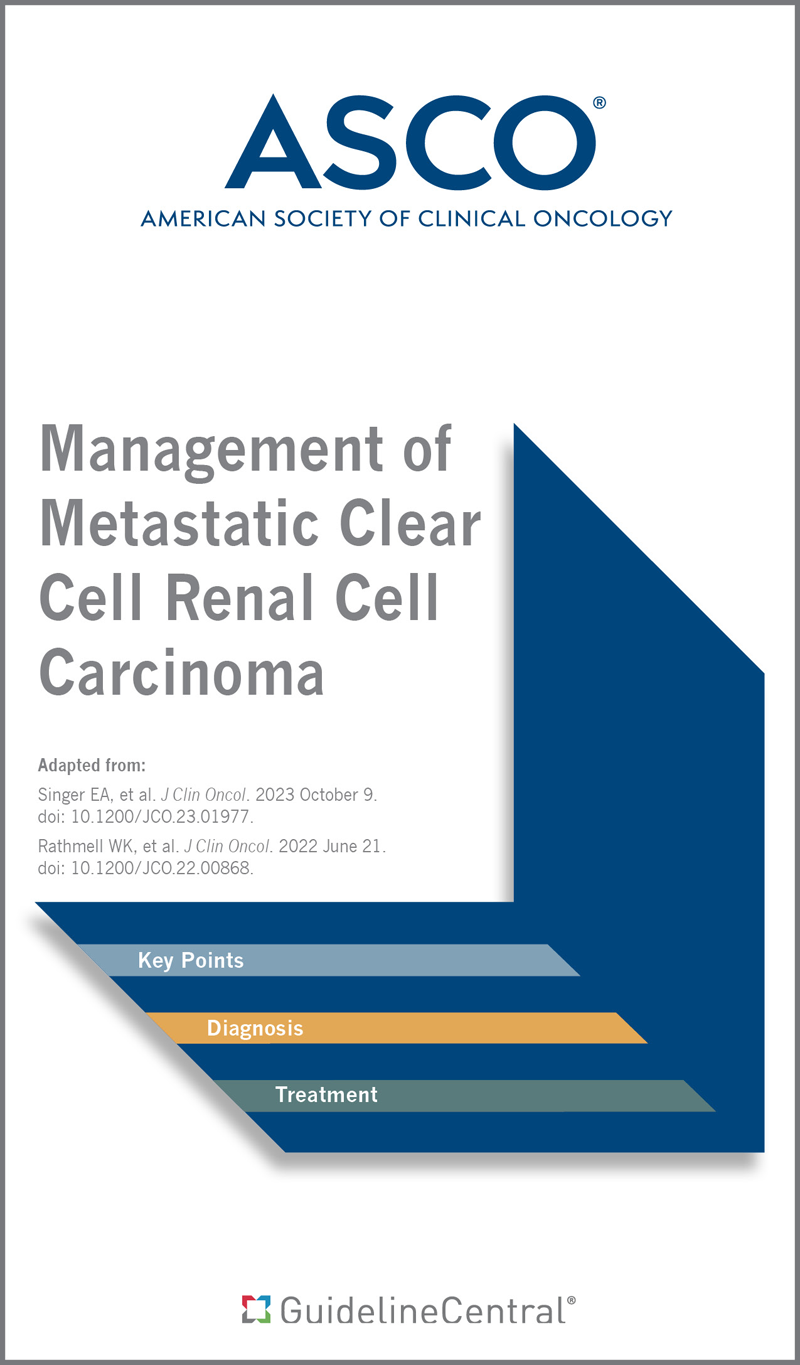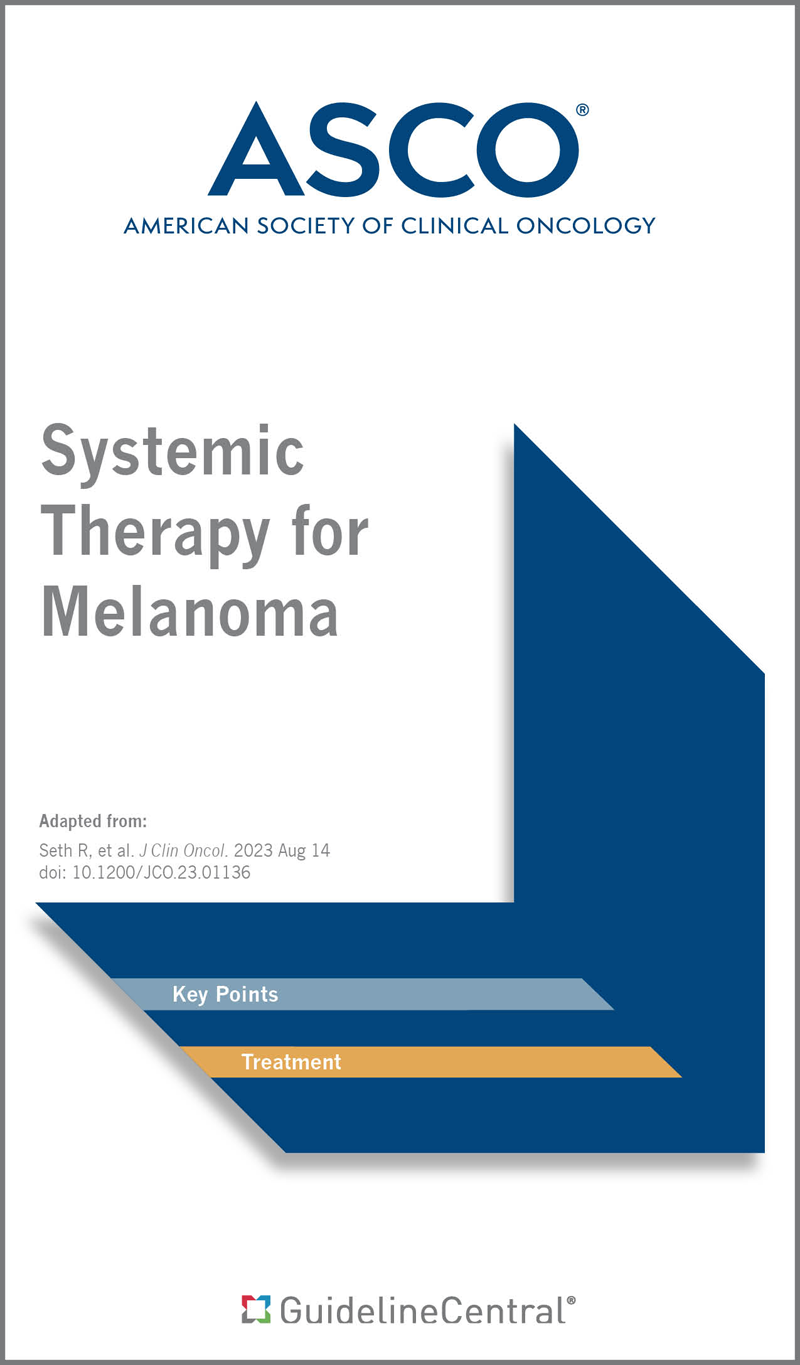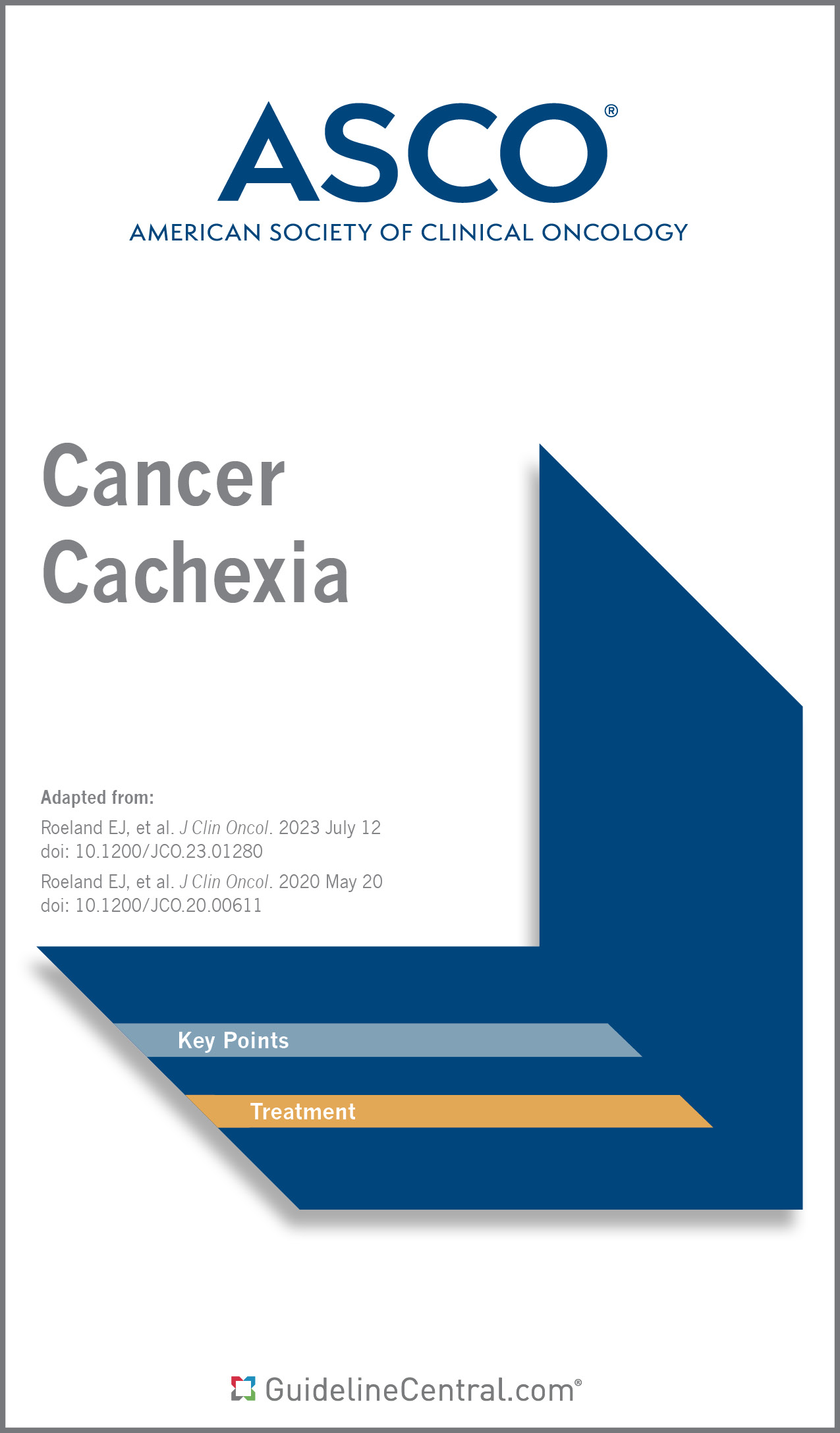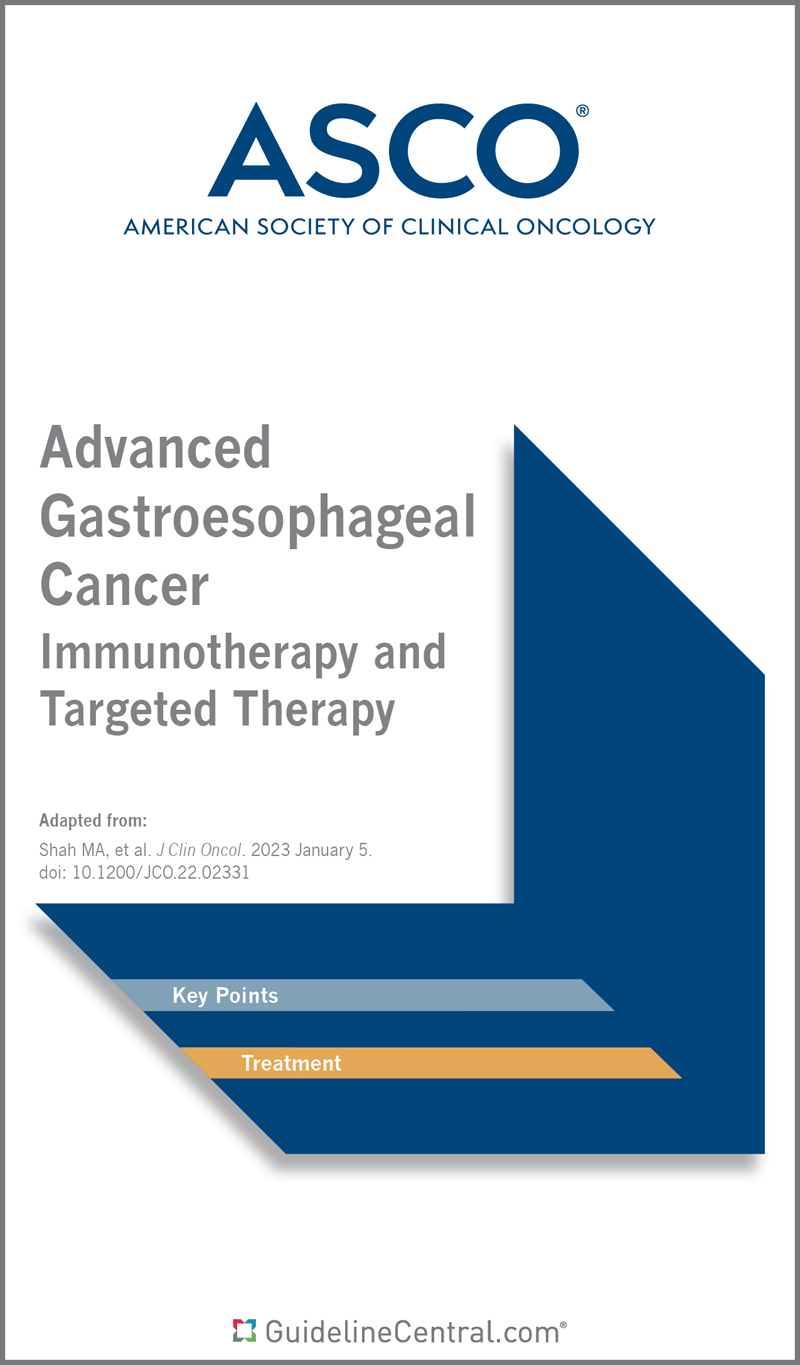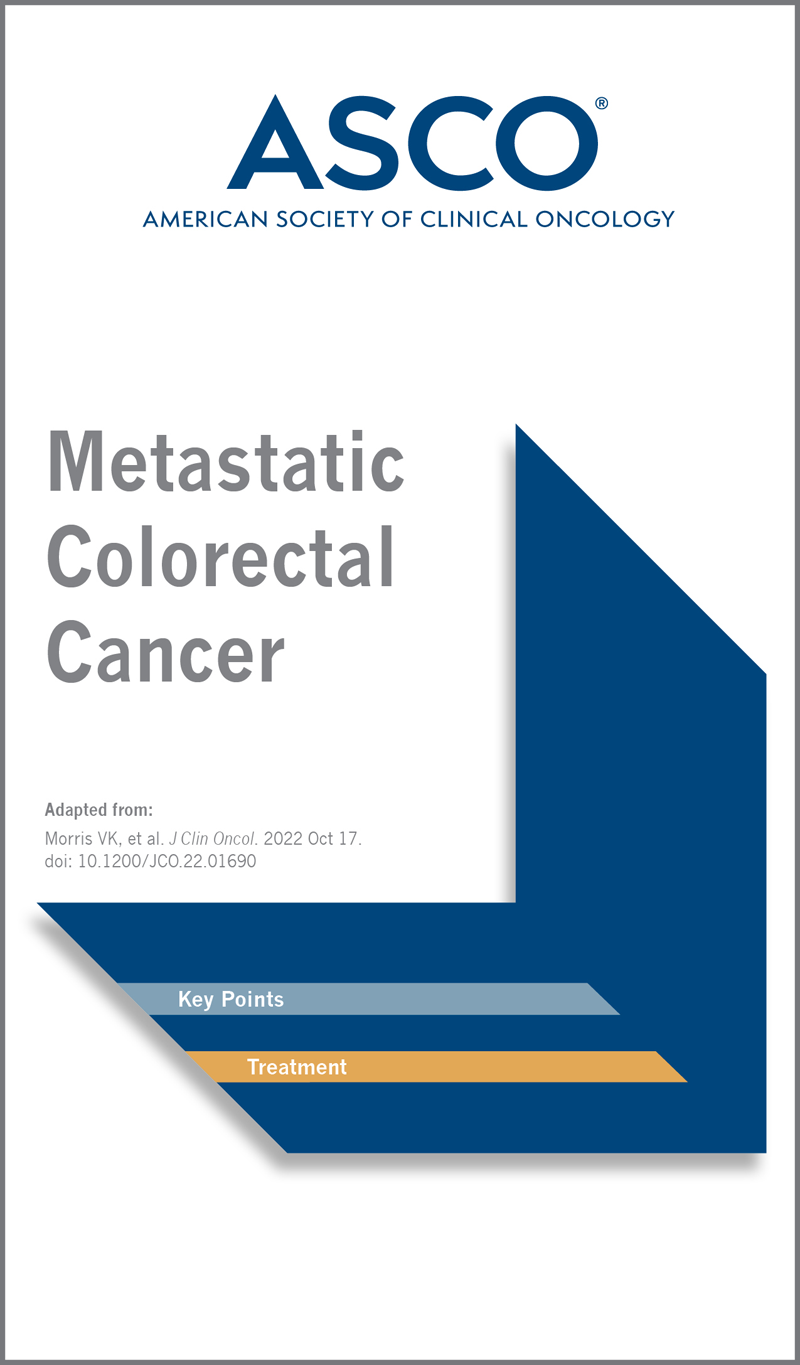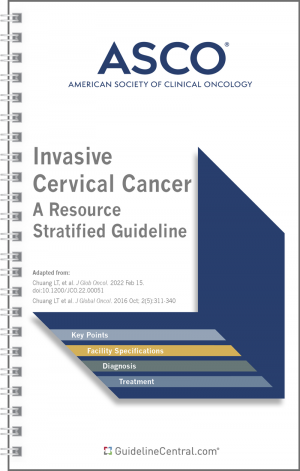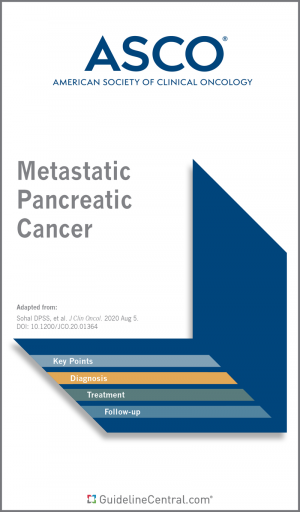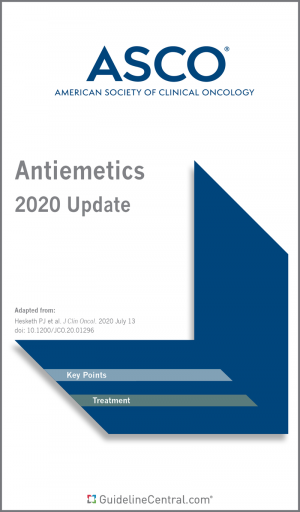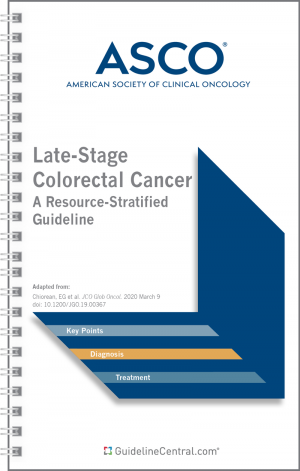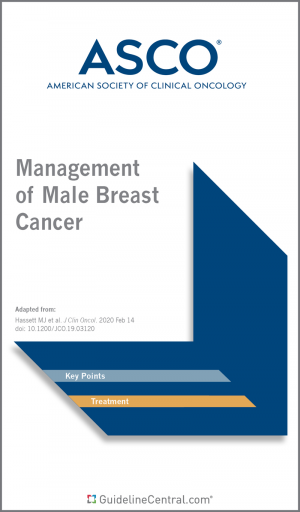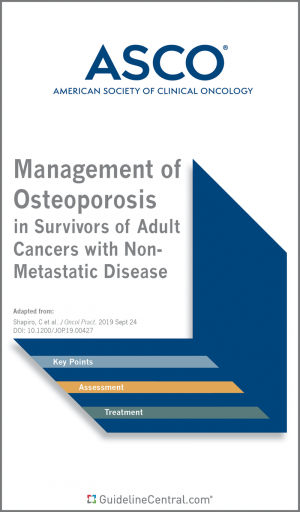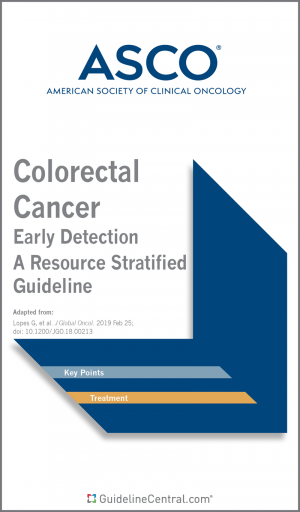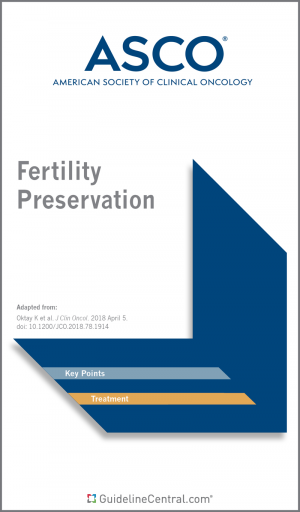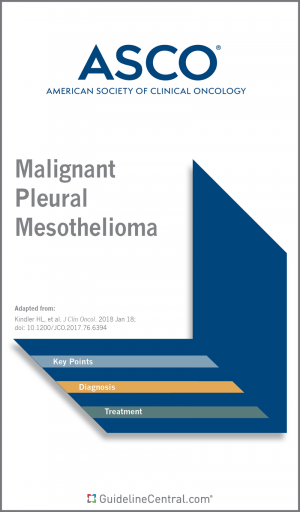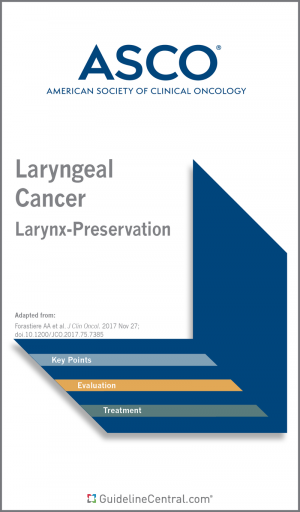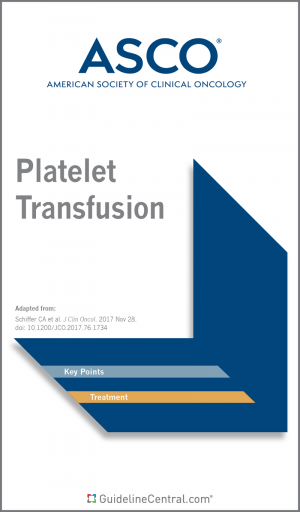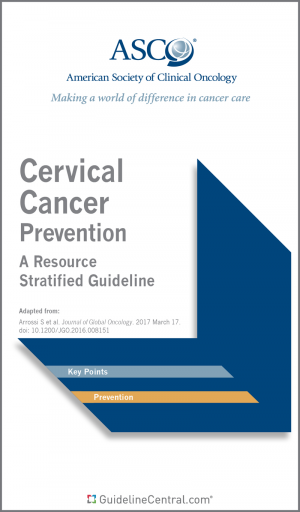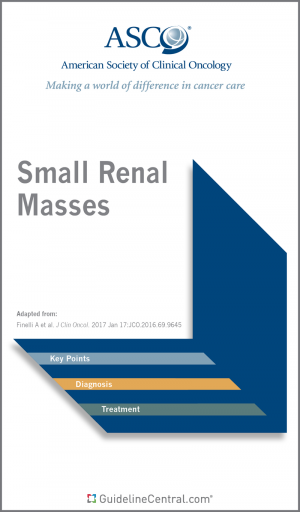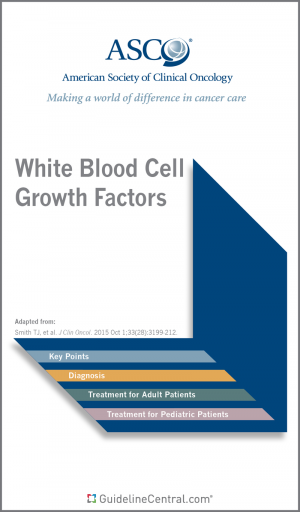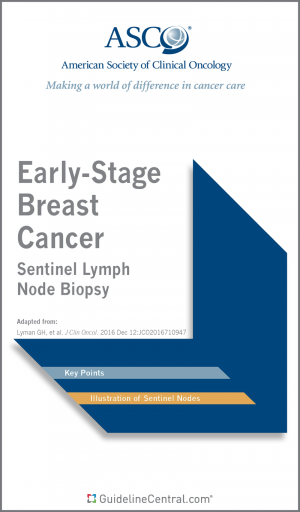Medication-Related Osteonecrosis of the Jaw
- 14 pages
- Spiral Bound
- 80# Aqueous Coating
- 4.25" x 7.25"
- Ships in 5 – 10 business days
- Key Points
- Diagnosis
- Risk Reduction
- Staging
- Treatment
- Tables
- BMAs and Risk of MRONJ
- Proposed Terms to Characterize ONJ After Treatment
- Descriptions of Complete, Partial and Minimal Dental Evaluation Protocols Based Upon the Type of Dental and/or Periodontal Pathology
- MASCC/ISOO Daily Oral Care Plan for Patients
- Treatment Strategies by Stage of MRONJ
- MRONJ Management Flow Diagram
- For purchases under 100 in quantity, we suggest placing the order directly through the website.
- We offer group/institutional licenses for multi-user accounts (discount amount varies depending on the number of users).
- We are proud to offer special discounts to medical schools, training programs, students and more.
- We offer bulk purchase discounts based on number of copies and number of titles.
Contact Us for more details
The Multinational Association of Supportive Care in Cancer (MASCC) is an international multidisciplinary organization dedicated to research and education in all aspects of supportive care for people with cancer regardless of the stage of their disease. Founded in 1990, MASCC now includes members from more than 70 countries.
Description
This pocket guide is derived from recommendations in the American Society of Clinical Oncology Guideline. This resource is a practice tool based on ASCO® practice guidelines and is not intended to substitute for the independent professional judgment of the treating physician. Practice guidelines do not account for individual variation among patients. This pocket guide does not purport to suggest any particular course of medical treatment. Use of the practice guidelines and this resource are voluntary. The practice guidelines and additional information are available at www.asco.org/supportive-care-guidelines. Copyright © 2021 by American Society of Clinical Oncology. All rights reserved.
You can also find this product included in this bundle!

- Adjuvant Bisphosphonates and Other Bone-Modifying Agents in Breast Cancer
- Adjuvant Therapy for Stage III Colon Cancer
- Advanced Gastroesophageal Cancer
- Advanced Human Epidermal Growth Factor Receptor 2-Positive Breast Cancer
- Advanced Human Epidermal Growth Factor Receptor 2-Positive Breast Cancer – Brain Metastases
- Antiemetics
- Antimicrobial Prophylaxis for Adult Patients With Cancer-Related Immunosuppression
- Anxiety and Depression in Adult Survivors of Cancer
- Appropriate Systemic Therapy Dosing for Obese Adult Patients with Cancer
- Axilla Management in Early-Stage Breast Cancer
- Biomarkers for Adjuvant Endocrine and Chemotherapy in Early-Stage Breast Cancer
- Biomarkers for Systemic Therapy in Metastatic Breast Cancer
- Bone-Modifying Agents in Metastatic Breast Cancer
- Bone-Modifying Agents in Multiple Myeloma
- Breast Cancer Germline Testing
- Cancer-Associated Anemia With Erythropoiesis-Stimulating Agents
- Cannabis in Adults with Cancer
- Cardiac Dysfunction - Prevention and Monitoring in Cancer Survivors
- Cervical Cancer Prevention
- Chemotherapy in Combination With Radiotherapy for Definitive-Intent Treatment of Stage II-IVA Nasopharyngeal Carcinoma
- Chemotherapy-Naïve Castration-Resistant Prostate Cancer
- Chronic Pain in Survivors of Adult Cancers
- Clear Cell Renal Cell Carcinoma
- Colorectal Cancer Biomarkers
- Colorectal Cancer Early Detection
- Diagnosis and Management of Squamous Cell Carcinoma of Unknown Primary in the Head and Neck
- Diffuse Astrocytic and Oligodendroglial Tumors in Adults
- Early-Stage Breast Cancer
- Estrogen and Progesterone Receptor Testing in Breast Cancer
- Exercise, Diet, and Weight Management During Cancer Treatment
- Fertility Preservation
- Germline and Somatic Tumor Testing in Epithelial Ovarian Cancer
- Hepatitis B Virus Screening and Management for Patients with Cancer Prior to Therapy
- HER2 Testing in Breast Cancer
- Hormone Receptor–Positive Breast Cancer Adjuvant Endocrine Therapy
- HR-Positive, HER2-Negative Metastatic Breast Cancer
- Immune-related Adverse Events from Immune Checkpoint Inhibitor Therapy
- Immune-related Adverse Events — CAR T-Cell Therapy
- Initial Management of Noncastrate Advanced, Recurrent, or Metastatic Prostate Cancer
- Integrative Medicine for Pain Management in Oncology
- Integrative Oncology Care of Symptoms of Anxiety and Depression in Adult Patients with Cancer
- Invasive Cervical Cancer
- Laryngeal Cancer
- Late-Stage Colorectal Cancer
- Lung Cancer Surveillance After Definitive Curative-Intent Therapy
- Malignant Pleural Mesothelioma
- Management of Cancer Cachexia
- Management of Dyspnea in Advanced Cancer
- Management of Hereditary Breast Cancer
- Management of Male Breast Cancer
- Management of Osteoporosis
- Management of Salivary Gland Malignancy
- Management of the Neck in Squamous Cell Carcinoma of the Oral Cavity and Oropharynx
- Medication-Related Osteonecrosis of the Jaw
- Metastatic Colorectal Cancer
- Metastatic HER2-Negative Breast Cancer – Chemo- and Targeted Therapy
- Metastatic Pancreatic Cancer
- Metastatic Well-differentiated Gastroenteropancreatic Neuroendocrine Tumors
- Molecular Biomarkers in Localized Prostate Cancer
- Multiple Myeloma
- Neoadjuvant Chemotherapy for Newly Diagnosed, Advanced Ovarian Cancer
- Neoadjuvant Chemotherapy, Endocrine Therapy, and Targeted Therapy for Breast Cancer
- Non-Small Cell Lung Cancer — Adjuvant Therapy for Completely Resected Stages I-IIIA
- Optimum Imaging Strategies for Advanced Prostate Cancer
- Outpatient Management of Fever and Neutropenia in Adults Treated for Malignancy
- Ovarian Masses and Treatment of Epithelial Ovarian Cancer
- Palliative Care in the Global Setting
- Pancreatic Cancer - Evaluating Susceptibility
- PARP Inhibitors in the Management of Ovarian Cancer
- Penile Cancer
- Platelet Transfusion
- Potentially Curable Pancreatic Adenocarcinoma
- Prevention And Management Of Chemotherapy-Induced Peripheral Neuropathy In Survivors Of Adult Cancers
- Recurrent and Metastatic Head and Neck Cancers
- Salivary Gland Hypofunction and/or Xerostomia
- Secondary Prevention of Cervical Cancer
- Selection of Optimal Adjuvant Chemotherapy and Targeted Therapy for Early Breast Cancer
- Small Renal Masses
- Somatic Genomic Testing for Metastatic or Advanced Cancer
- Stage II Colon Cancer Adjuvant Therapy
- Stage III Non-Small Cell Lung Cancer
- Stage IV Non-Small Cell Lung Cancer without Driver Alterations
- Systemic Therapy for Advanced Hepatocellular Carcinoma
- Systemic Therapy for Melanoma
- Systemic Therapy for Small Cell Lung Cancer
- Systemic Treatment of Patients With Metastatic Breast Cancer
- Therapy for Stage IV Non-Small-Cell Lung Cancer With Driver Alterations
- Treatment for Brain Metastases
- Treatment of Early-Stage Colorectal Cancer
- Treatment of Locally Advanced Esophageal Carcinoma
- Treatment of Metastatic Carcinoma and Myeloma of the Femur
- Use of Endocrine Therapy for Breast Cancer Risk Reduction
- Use of Opioids for Cancer Pain
- Vaccination of Adults with Cancer
- Venous Thromboembolism Prophylaxis and Treatment in Patients with Cancer
- Vulnerabilities in Older Patients Receiving Systemic Cancer Therapy
- White Blood Cell Growth Factors
Related Guidelines
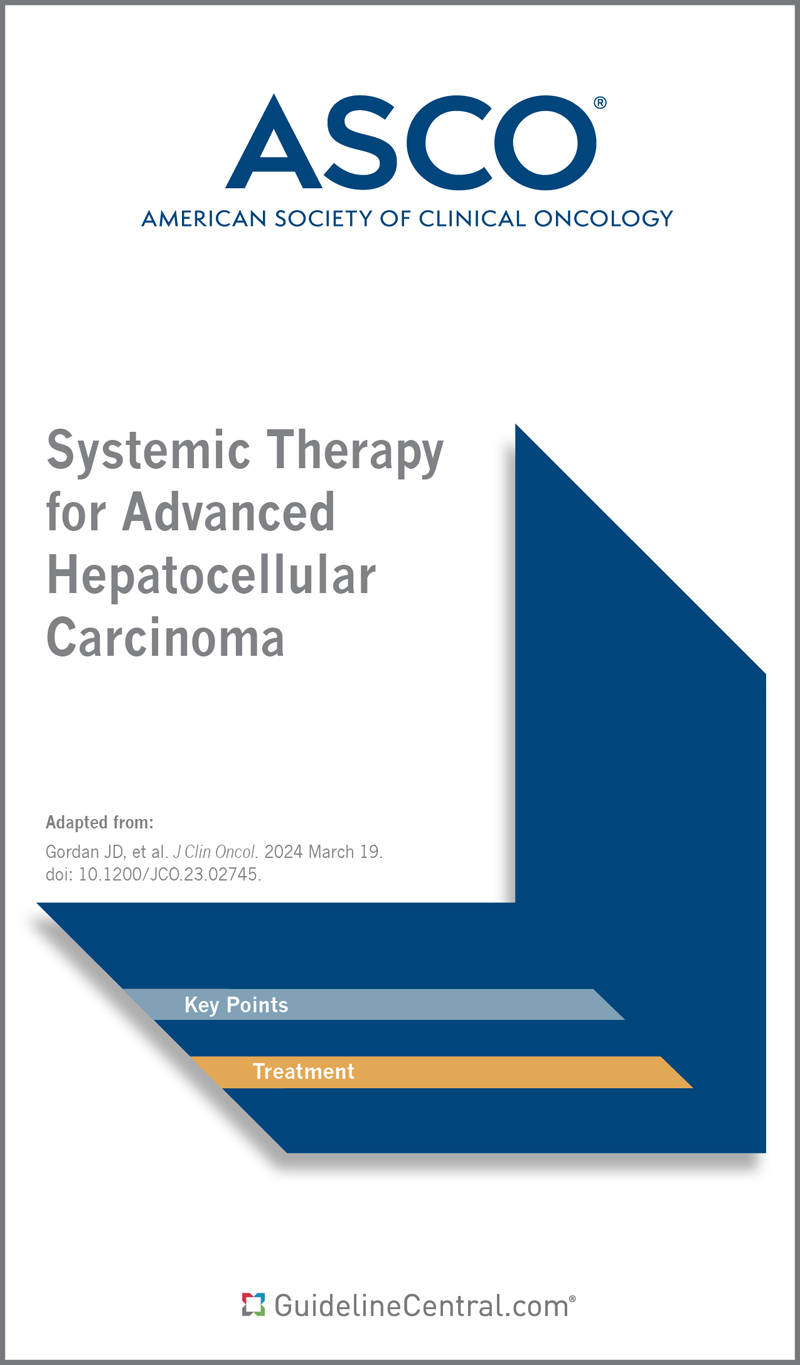
Systemic Therapy for Advanced Hepatocellular Carcinoma
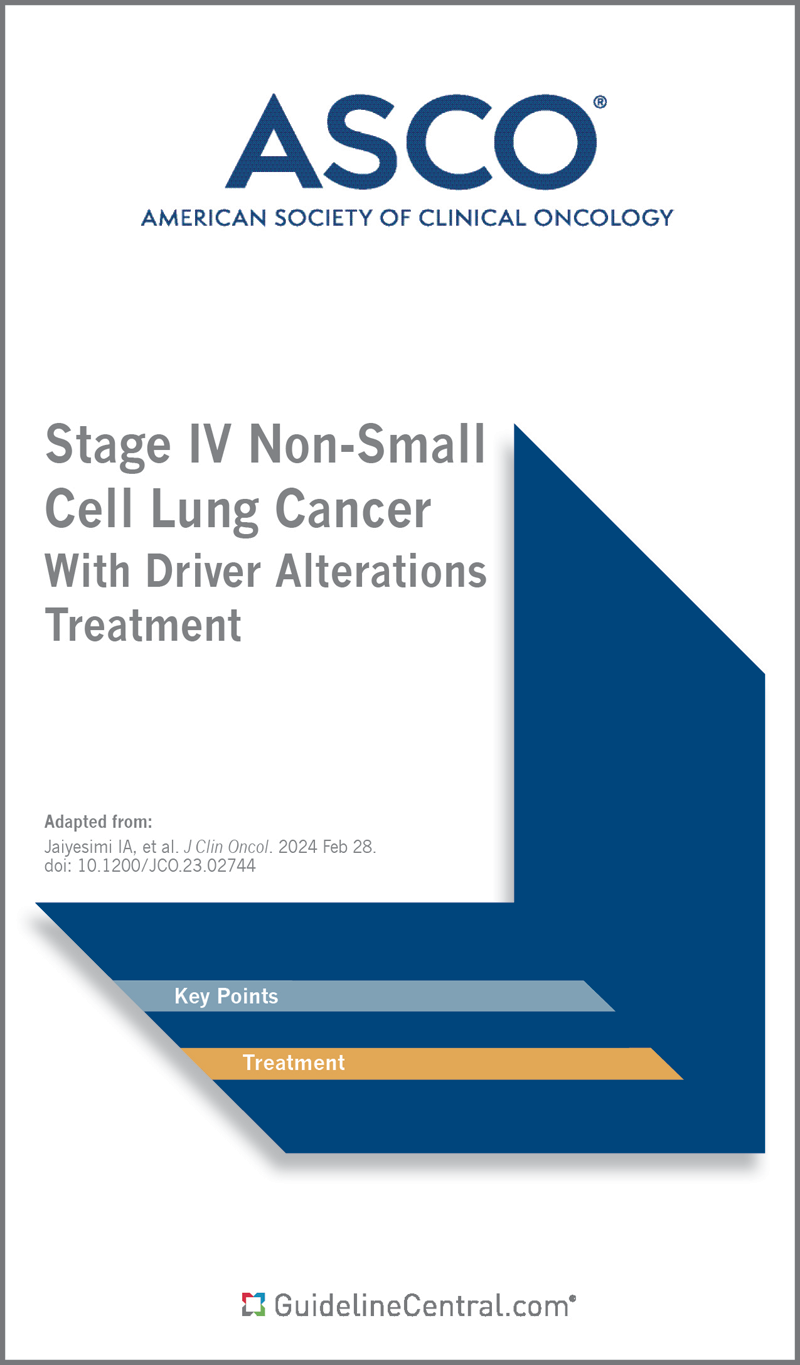
Therapy for Stage IV Non-Small-Cell Lung Cancer With Driver Alterations
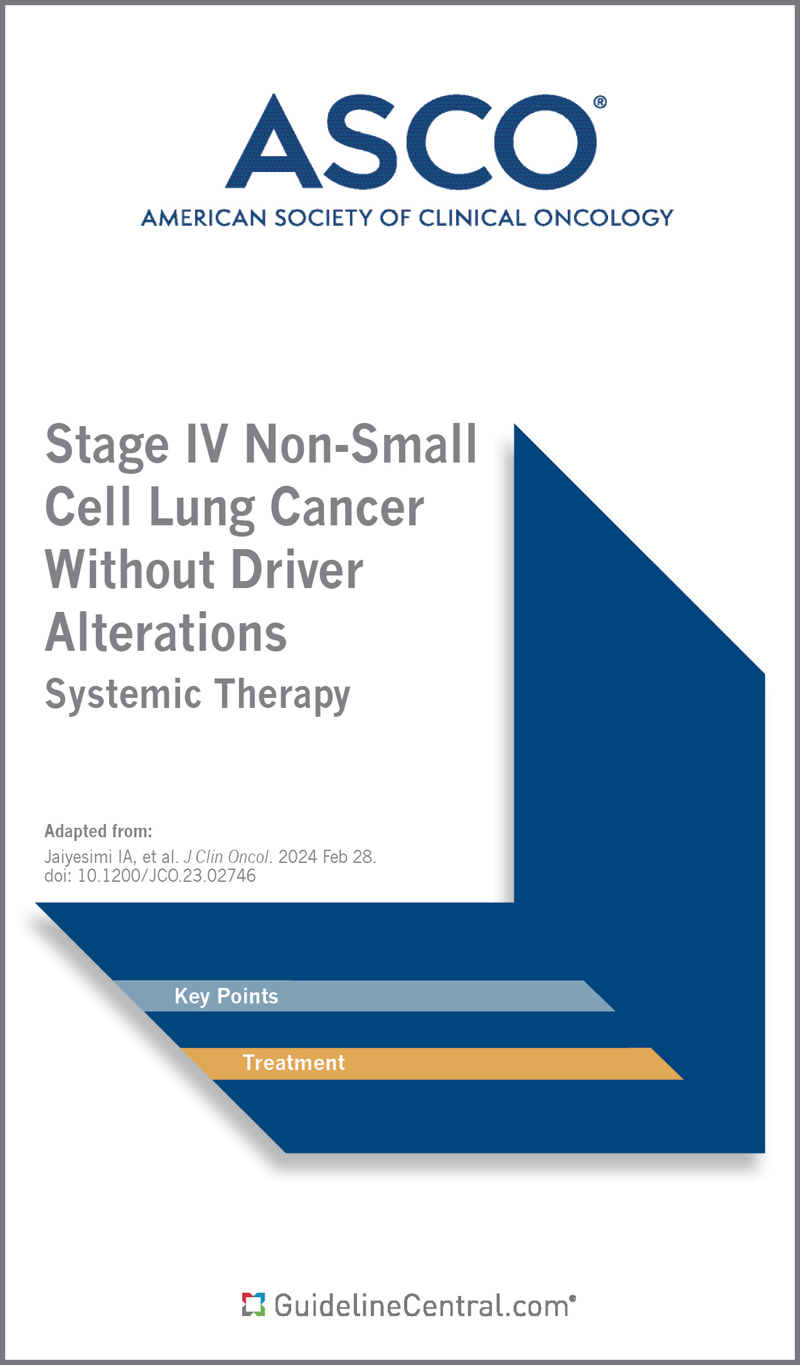
Stage IV Non-Small Cell Lung Cancer without Driver Alterations
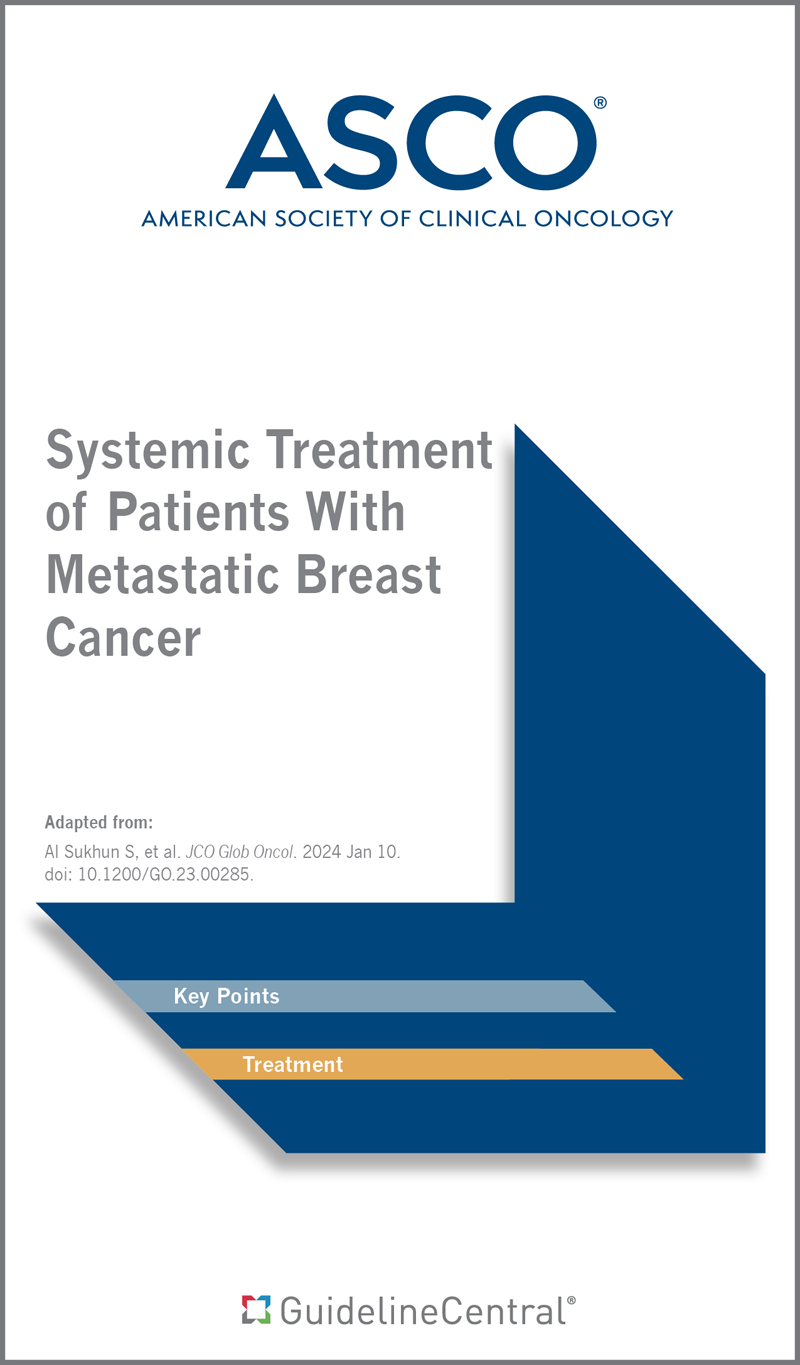
Systemic Treatment of Patients With Metastatic Breast Cancer
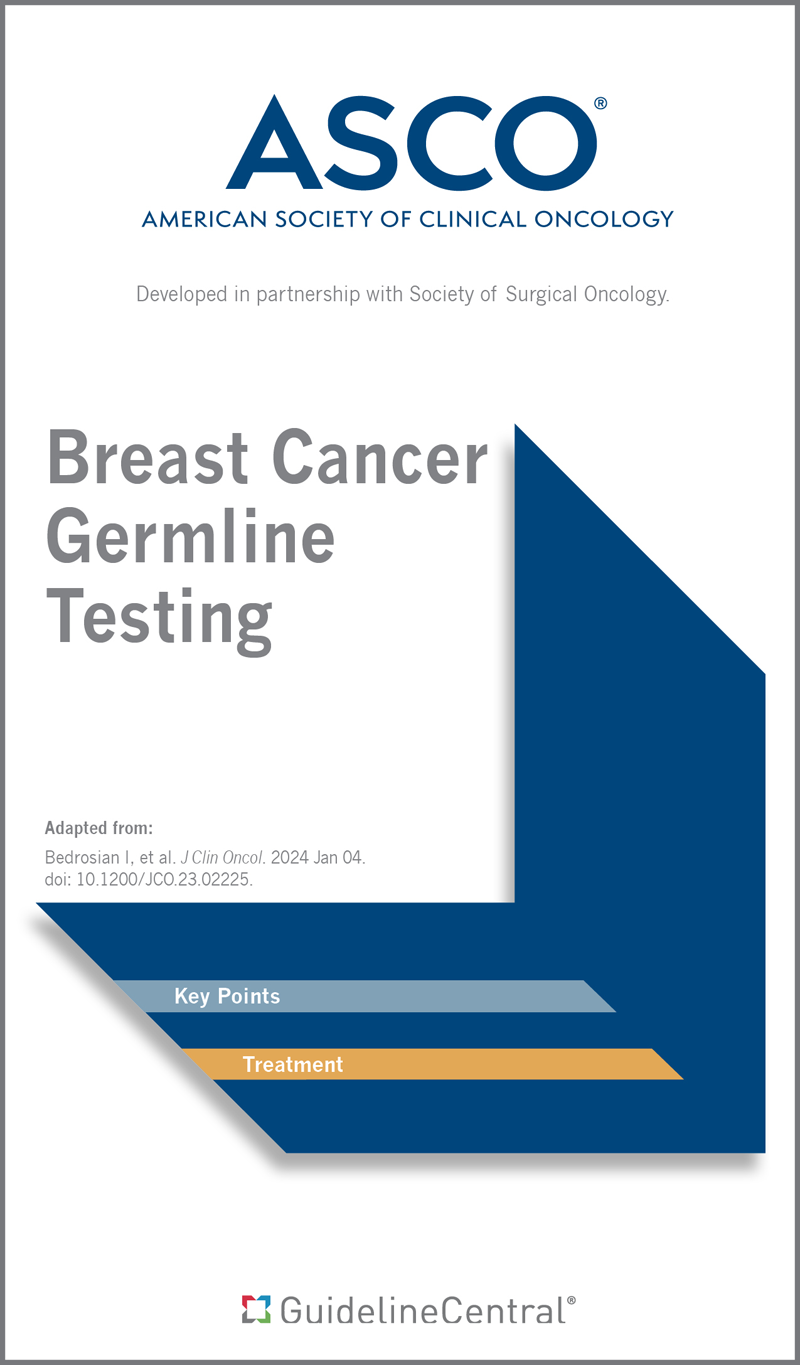
Breast Cancer Germline Testing
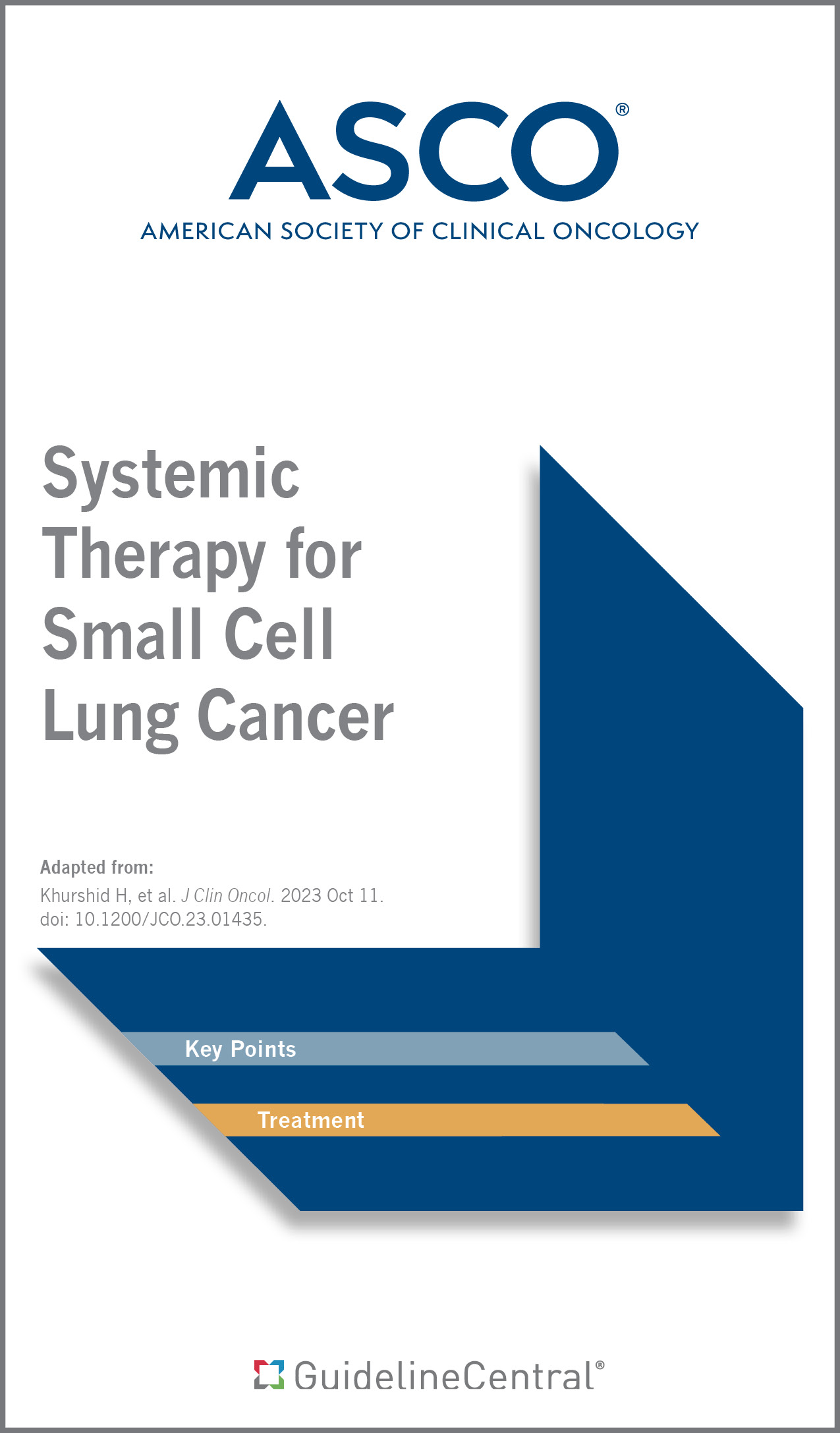
Systemic Therapy for Small Cell Lung Cancer
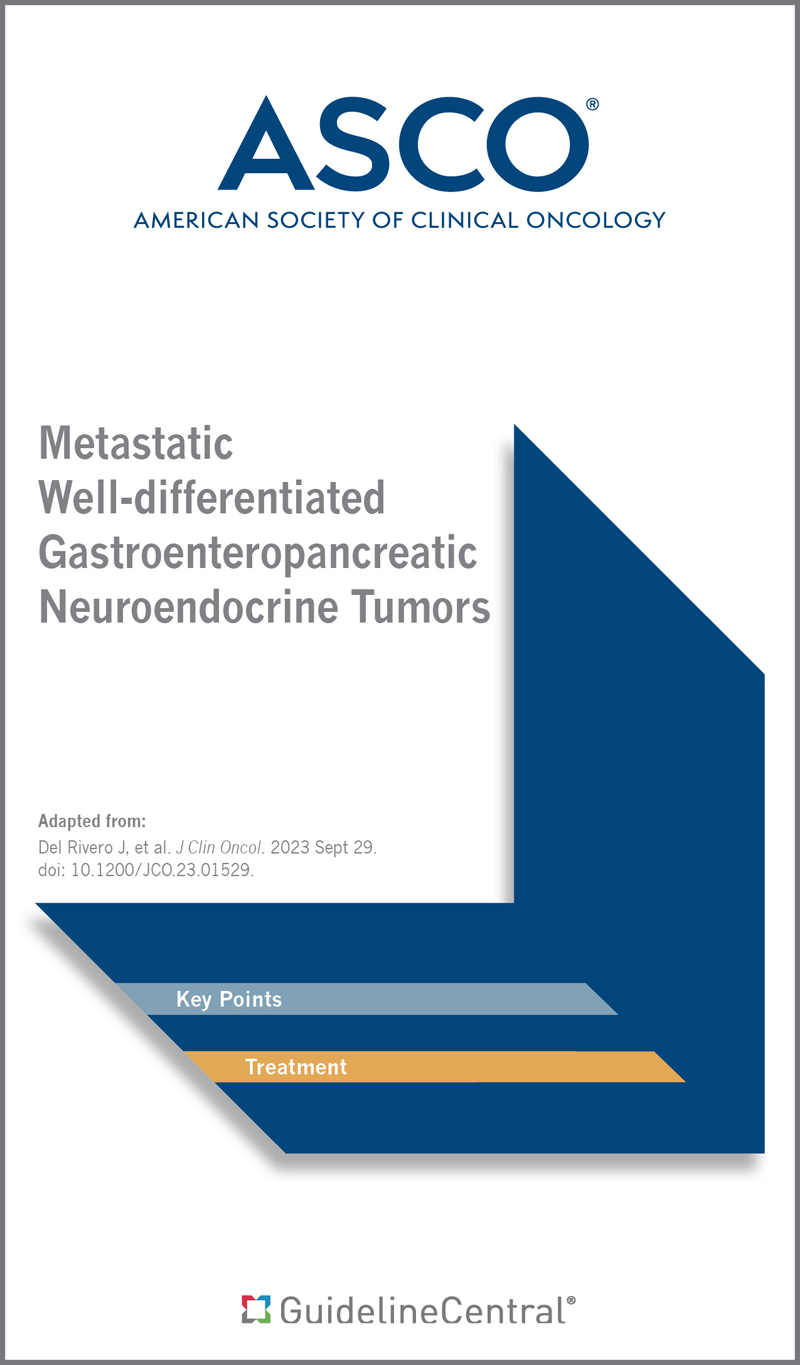
Metastatic Well-differentiated Gastroenteropancreatic Neuroendocrine Tumors
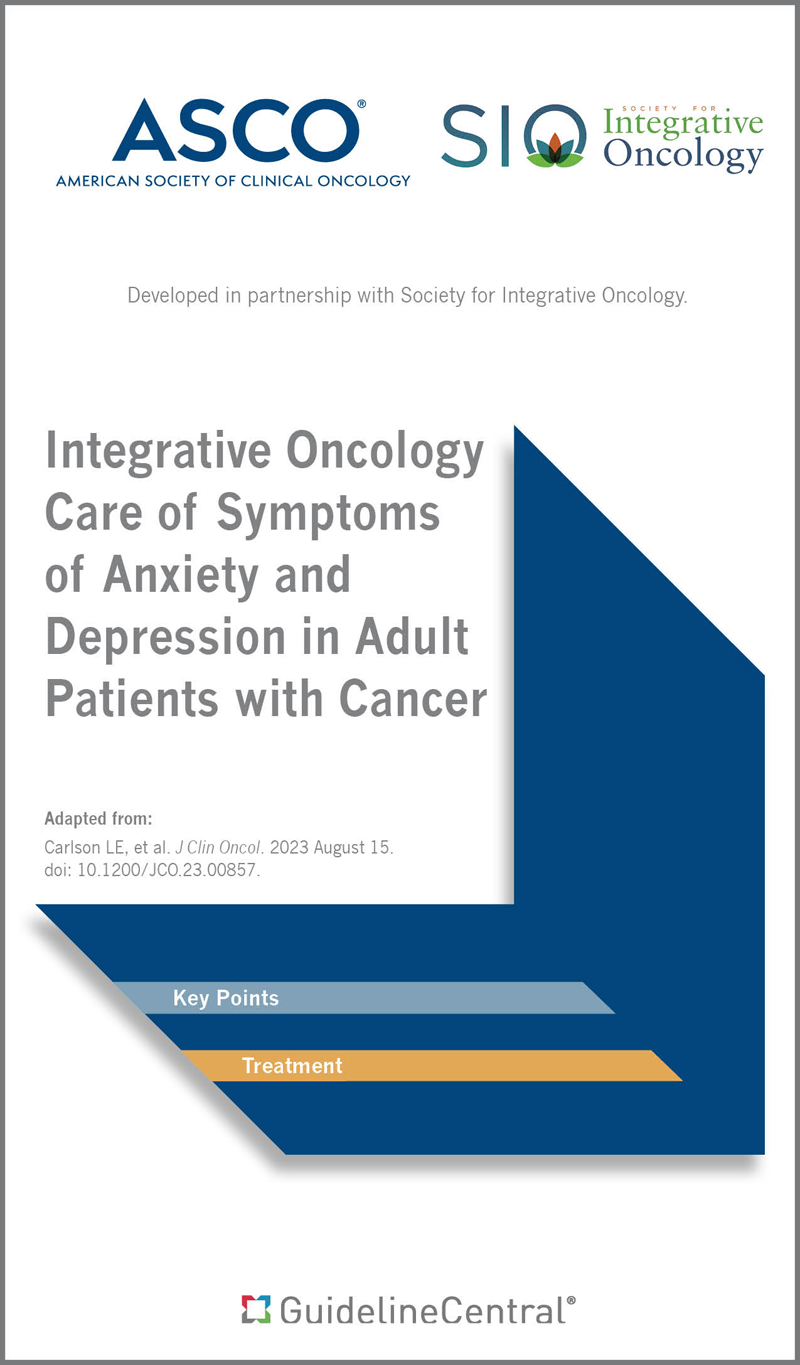
Integrative Oncology Care of Symptoms of Anxiety and Depression in Adult Patients with Cancer
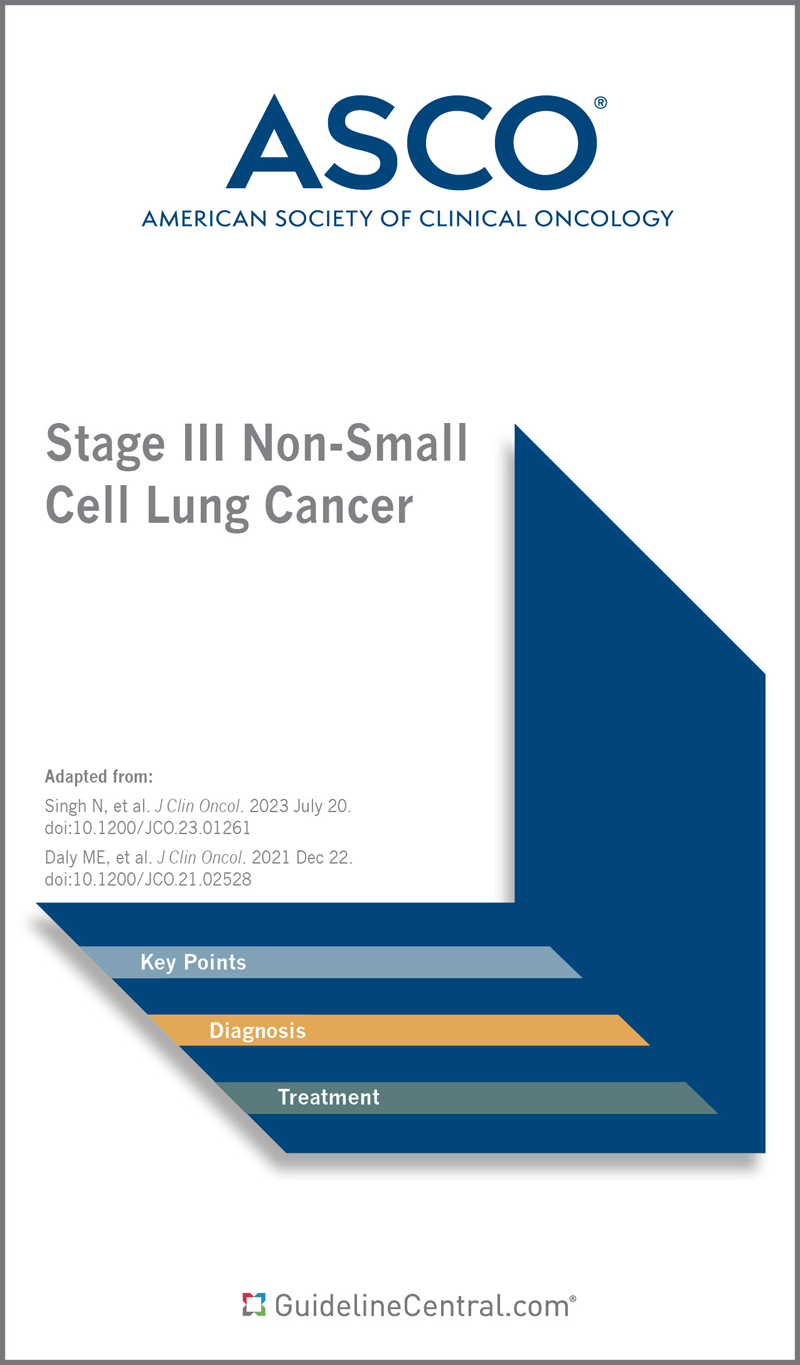
Stage III Non-Small Cell Lung Cancer
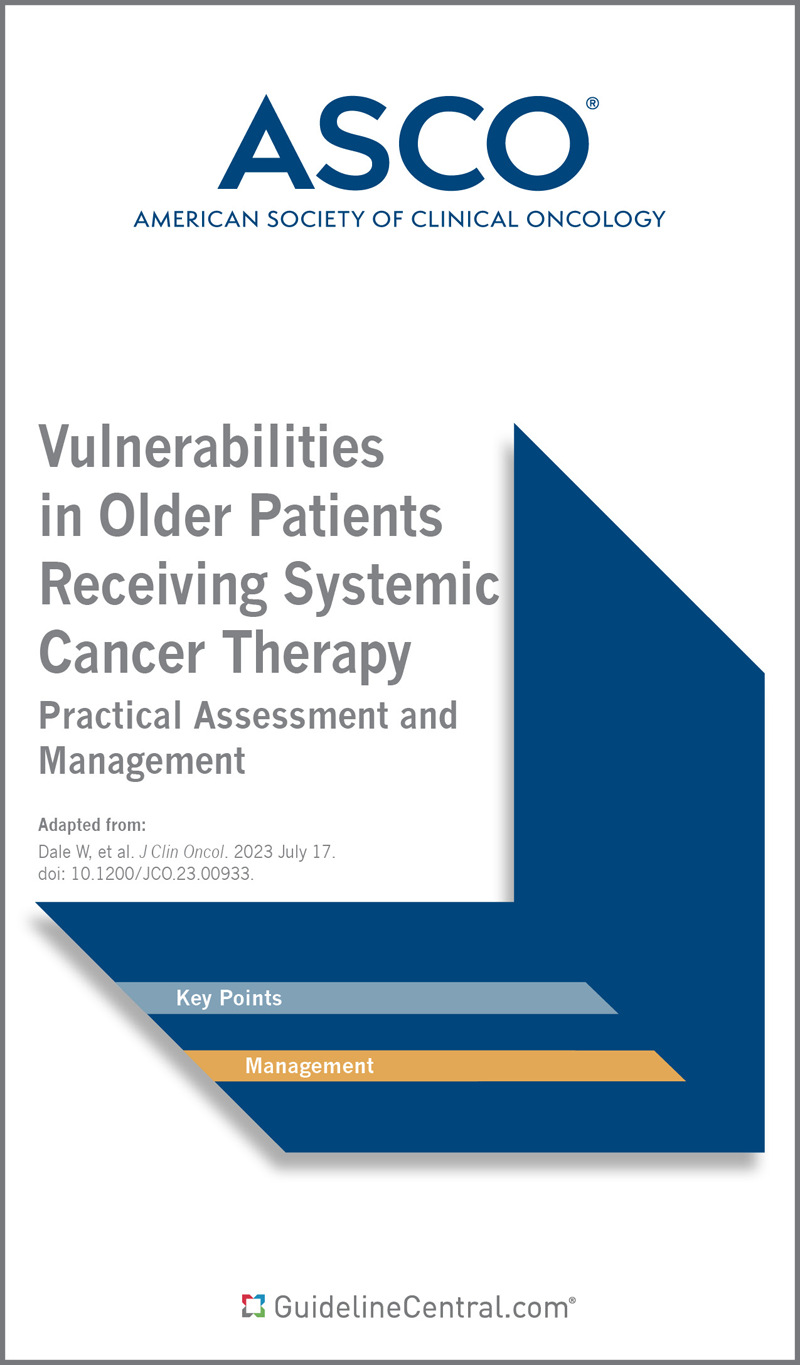
Vulnerabilities in Older Patients Receiving Systemic Cancer Therapy
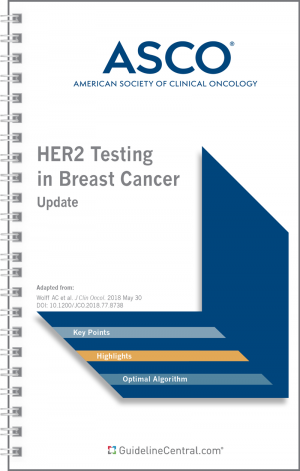
HER2 Testing in Breast Cancer
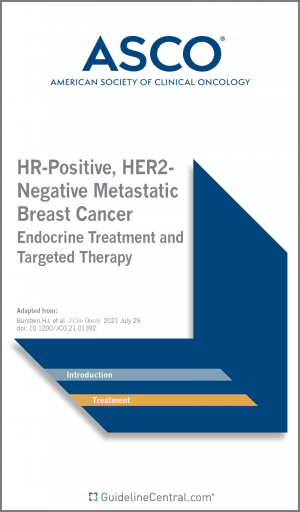
HR-Positive, HER2-Negative Metastatic Breast Cancer
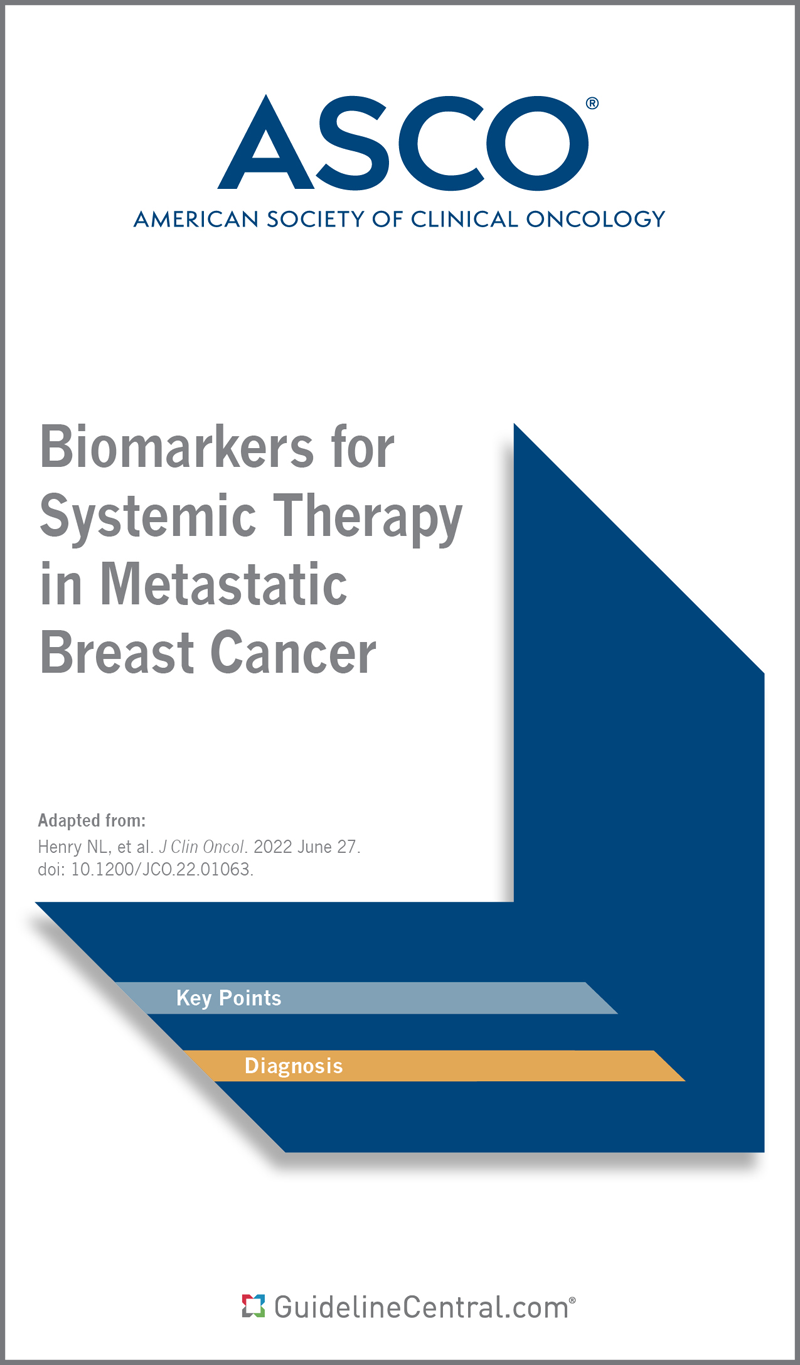
Biomarkers for Systemic Therapy in Metastatic Breast Cancer
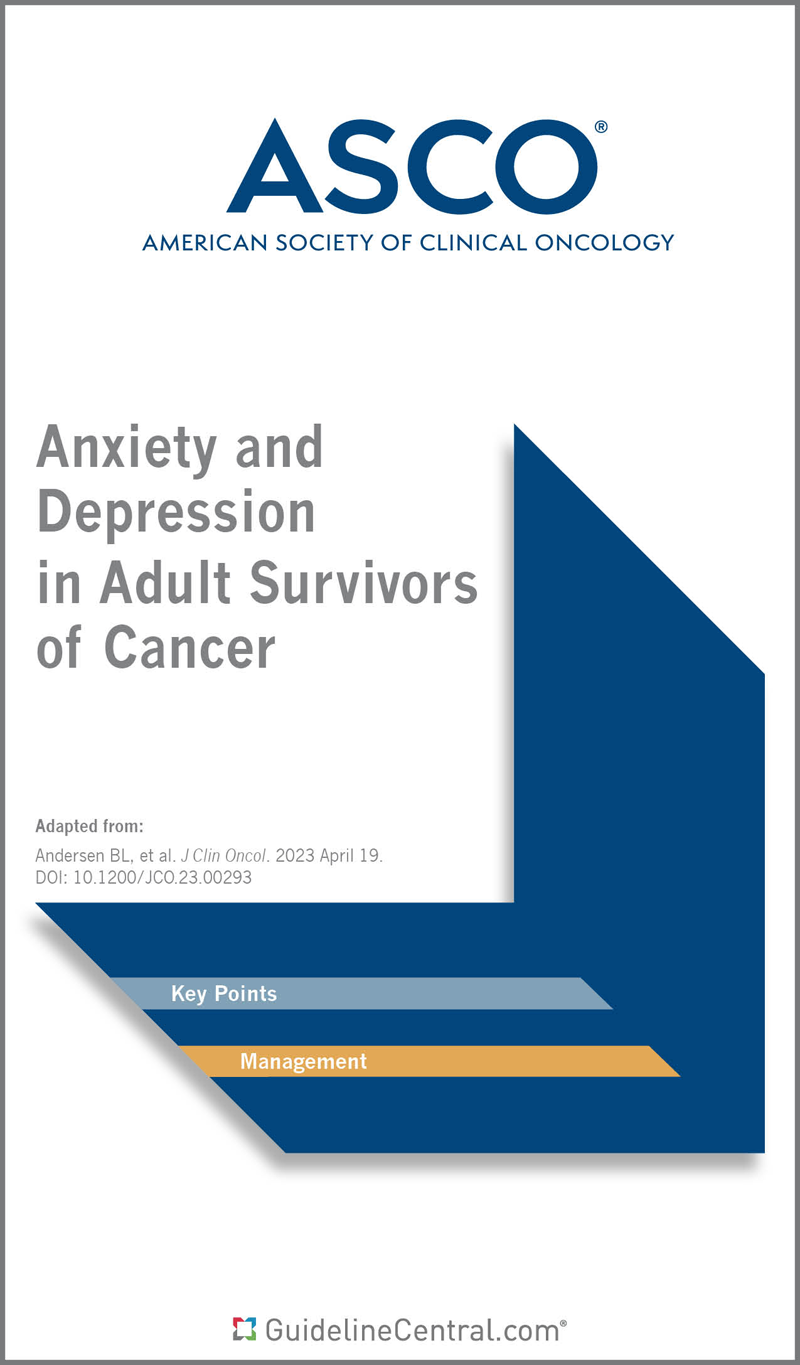
Anxiety and Depression in Adult Survivors of Cancer
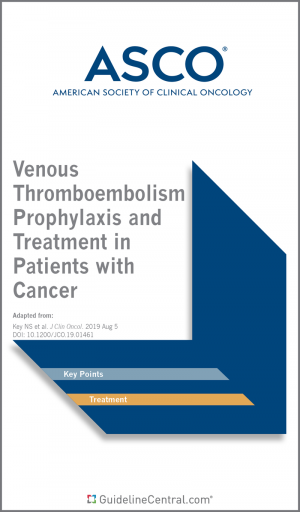
Venous Thromboembolism Prophylaxis and Treatment in Patients with Cancer
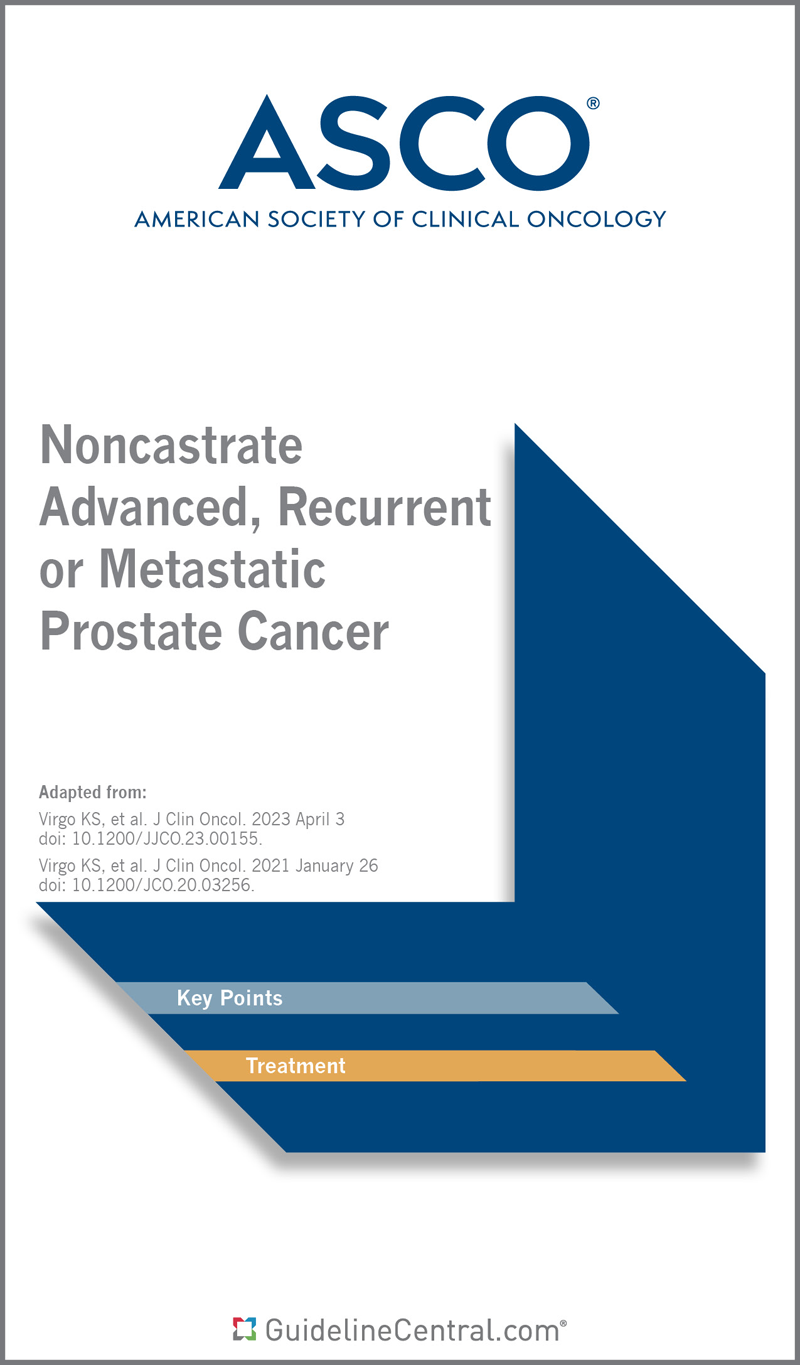
Initial Management of Noncastrate Advanced, Recurrent, or Metastatic Prostate Cancer
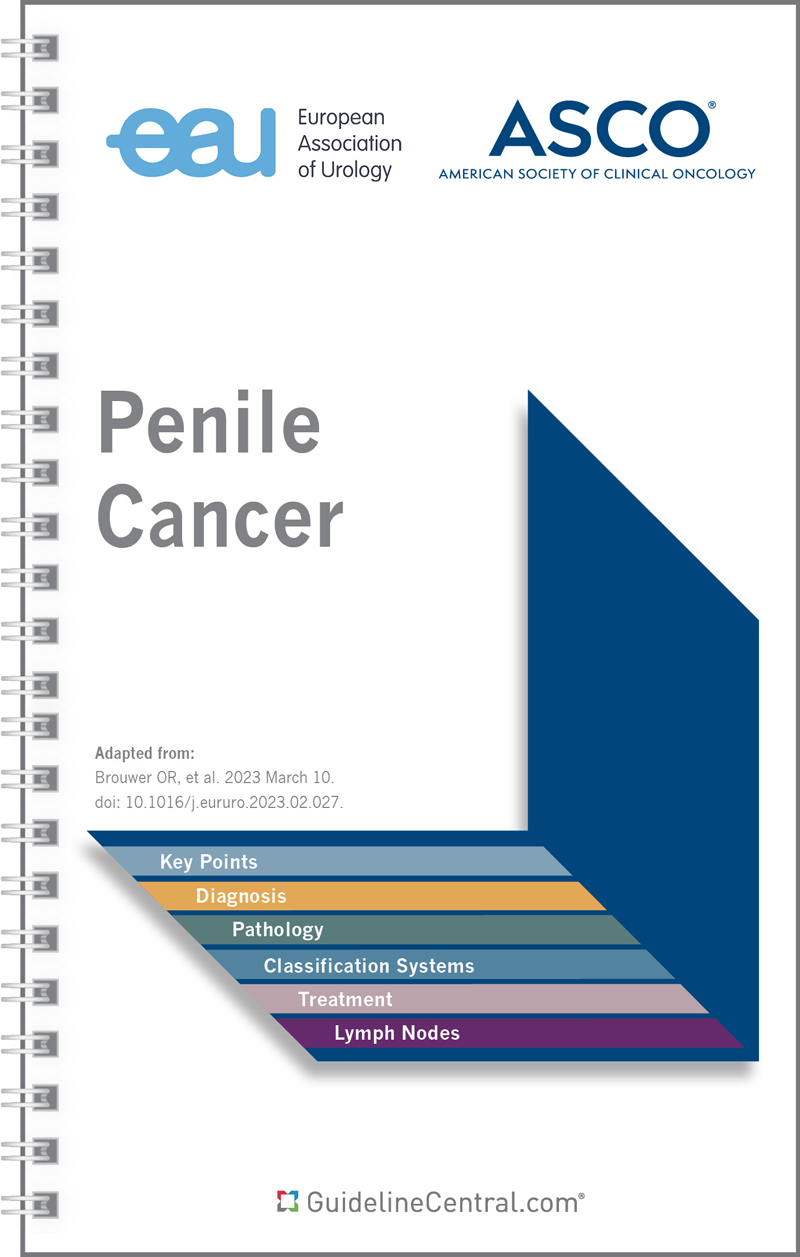
Penile Cancer
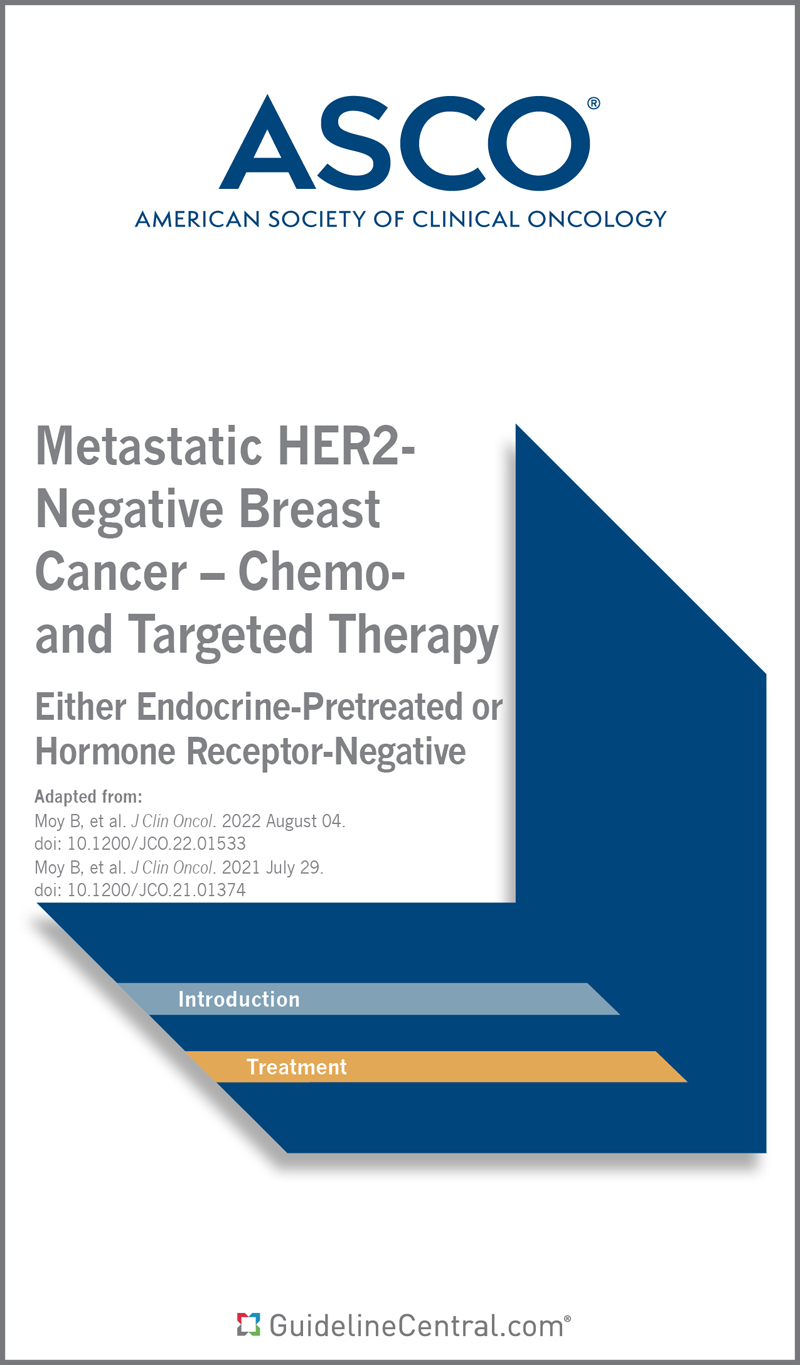
Metastatic HER2-Negative Breast Cancer – Chemo- and Targeted Therapy
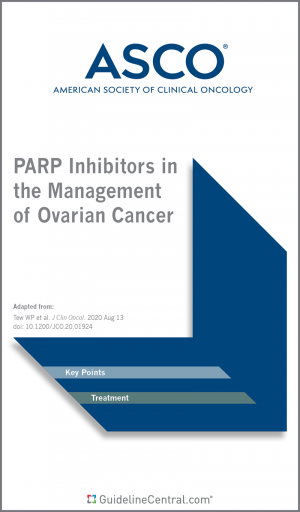
PARP Inhibitors in the Management of Ovarian Cancer
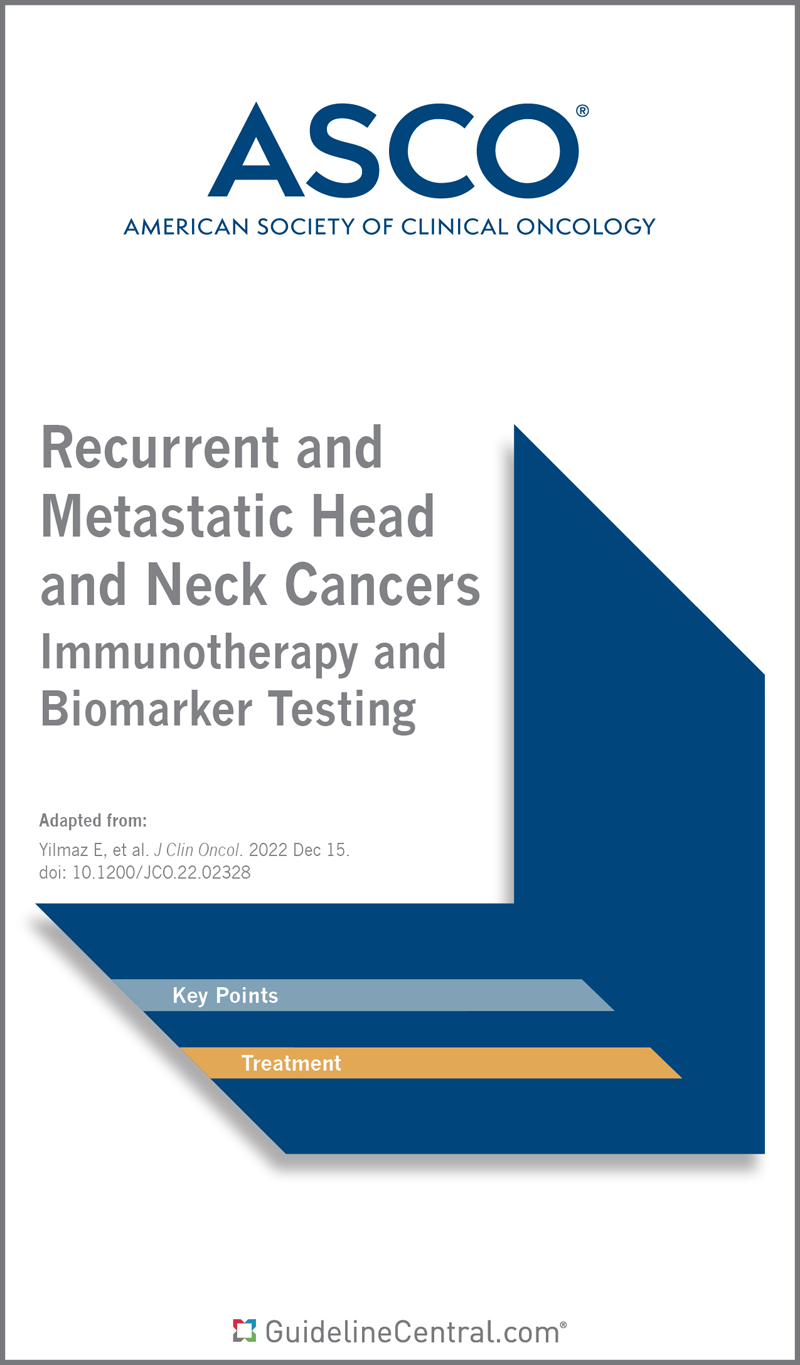
Recurrent and Metastatic Head and Neck Cancers
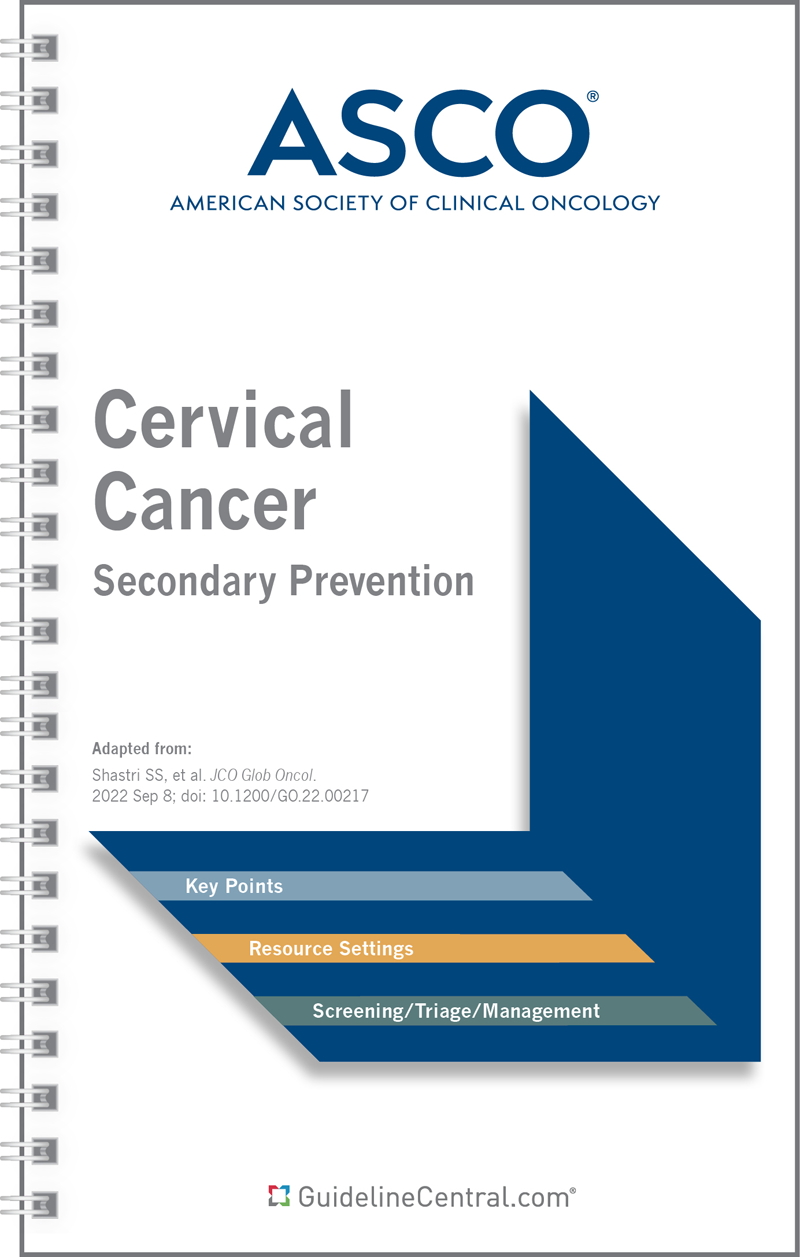
Secondary Prevention of Cervical Cancer
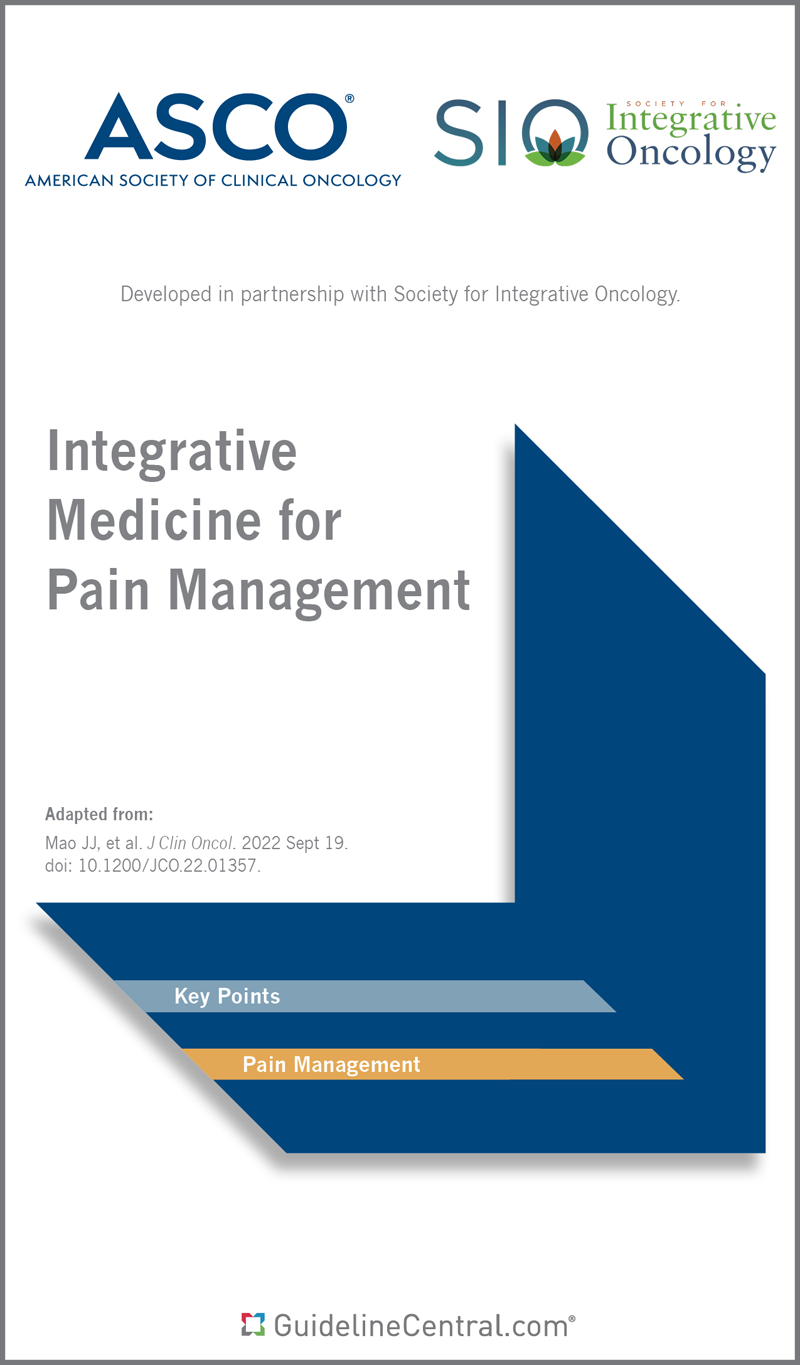
Integrative Medicine for Pain Management in Oncology
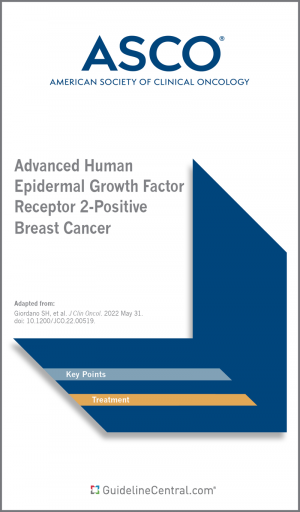
Advanced Human Epidermal Growth Factor Receptor 2-Positive Breast Cancer
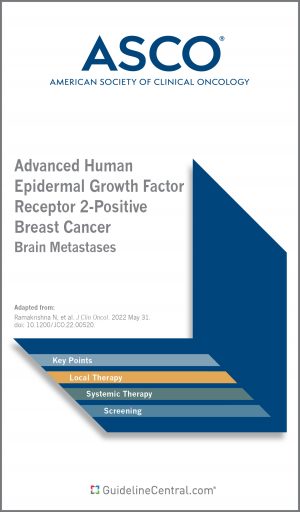
Advanced Human Epidermal Growth Factor Receptor 2-Positive Breast Cancer – Brain Metastases
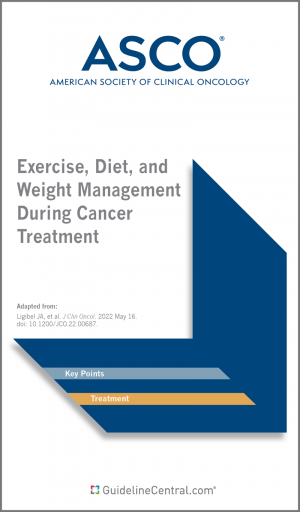
Exercise, Diet, and Weight Management During Cancer Treatment
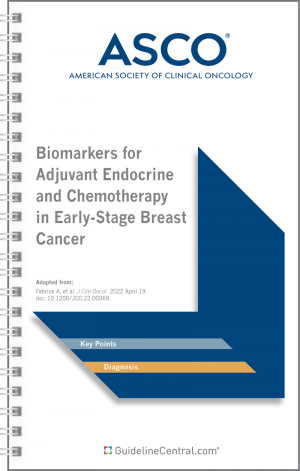
Biomarkers for Adjuvant Endocrine and Chemotherapy in Early-Stage Breast Cancer
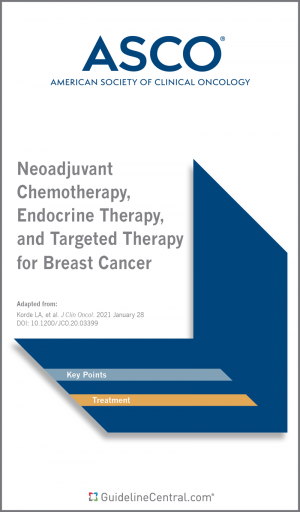
Neoadjuvant Chemotherapy, Endocrine Therapy, and Targeted Therapy for Breast Cancer
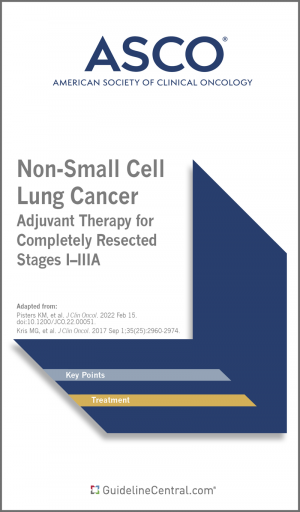
Non-Small Cell Lung Cancer — Adjuvant Therapy for Completely Resected Stages I-IIIA

Somatic Genomic Testing for Metastatic or Advanced Cancer
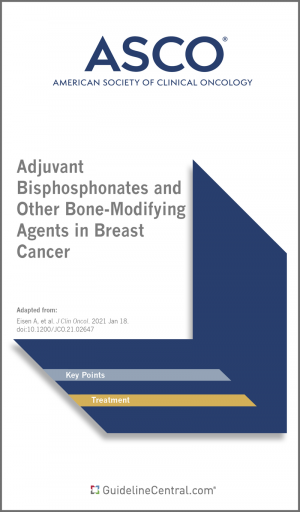
Adjuvant Bisphosphonates and Other Bone-Modifying Agents in Breast Cancer
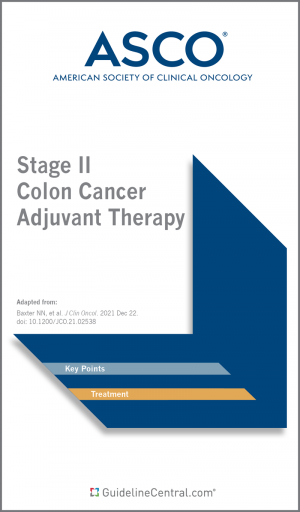
Stage II Colon Cancer Adjuvant Therapy
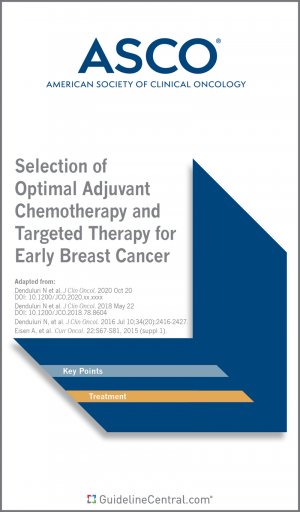
Selection of Optimal Adjuvant Chemotherapy and Targeted Therapy for Early Breast Cancer
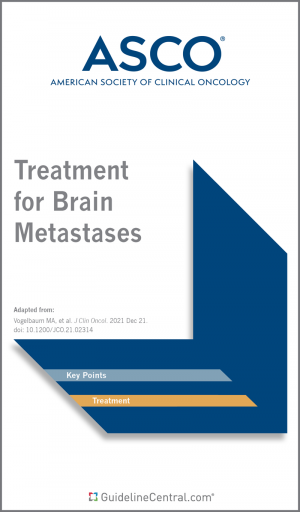
Treatment for Brain Metastases
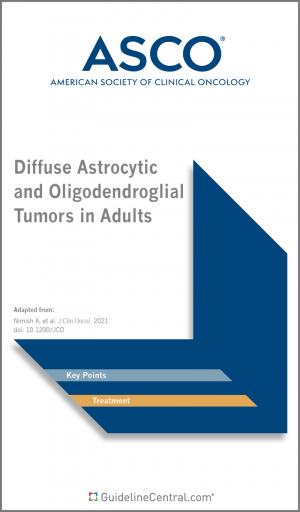
Diffuse Astrocytic and Oligodendroglial Tumors in Adults
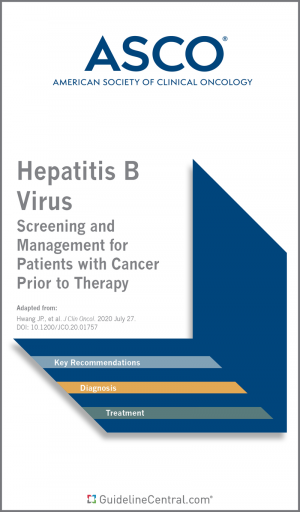
Hepatitis B Virus Screening and Management for Patients with Cancer Prior to Therapy
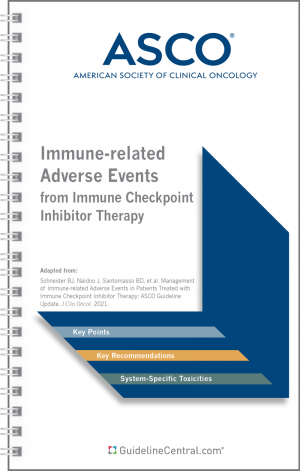
Immune-related Adverse Events from Immune Checkpoint Inhibitor Therapy
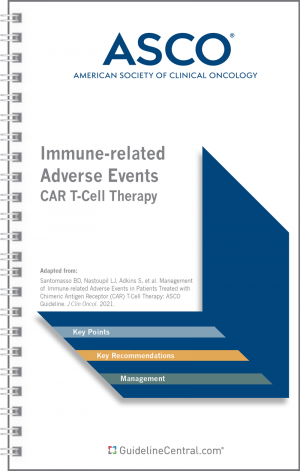
Immune-related Adverse Events — CAR T-Cell Therapy
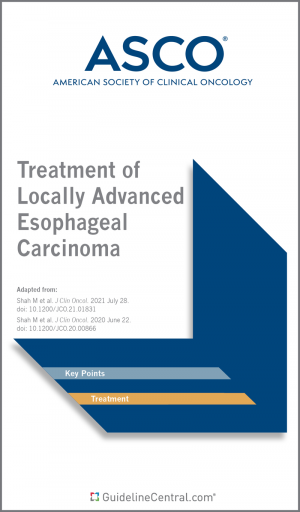
Treatment of Locally Advanced Esophageal Carcinoma
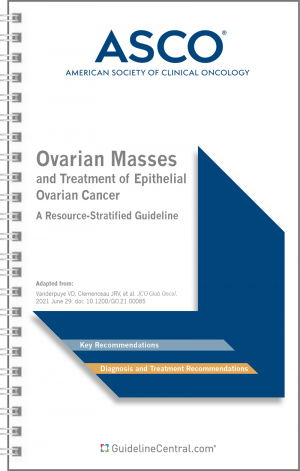
Ovarian Masses and Treatment of Epithelial Ovarian Cancer
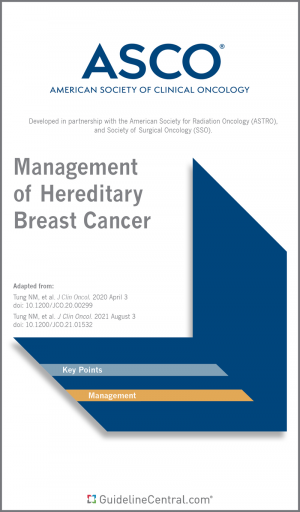
Management of Hereditary Breast Cancer
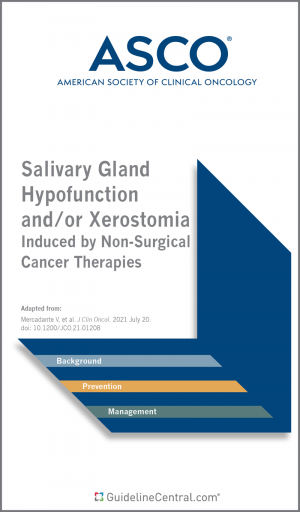
Salivary Gland Hypofunction and/or Xerostomia
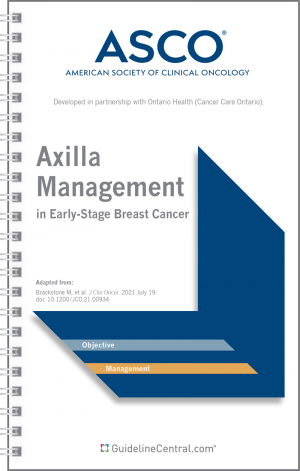
Axilla Management in Early-Stage Breast Cancer
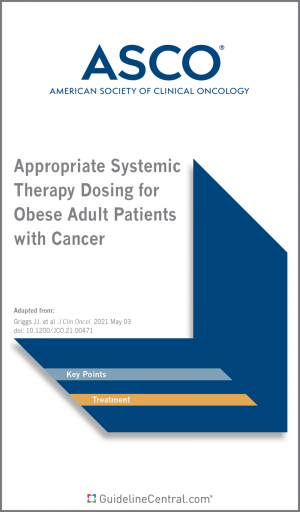
Appropriate Systemic Therapy Dosing for Obese Adult Patients with Cancer
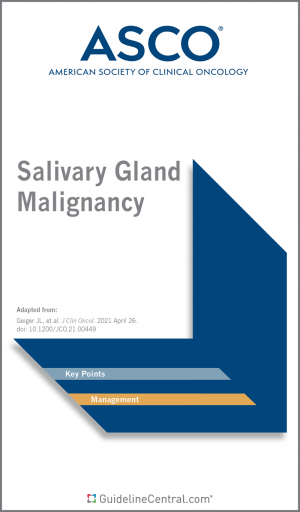
Management of Salivary Gland Malignancy
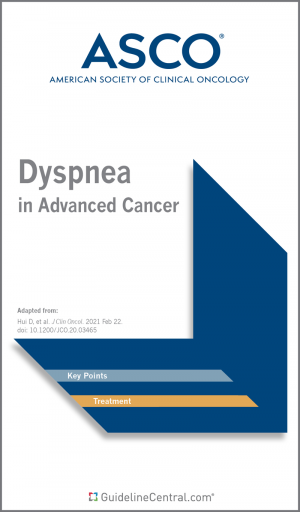
Management of Dyspnea in Advanced Cancer
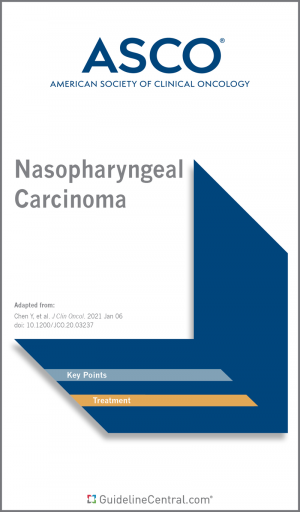
Chemotherapy in Combination With Radiotherapy for Definitive-Intent Treatment of Stage II-IVA Nasopharyngeal Carcinoma
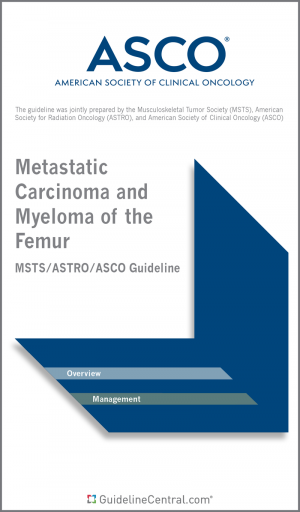
Treatment of Metastatic Carcinoma and Myeloma of the Femur
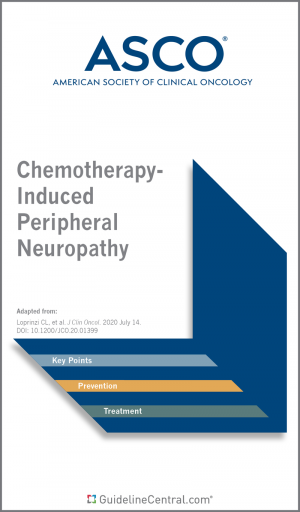
Prevention And Management Of Chemotherapy-Induced Peripheral Neuropathy In Survivors Of Adult Cancers
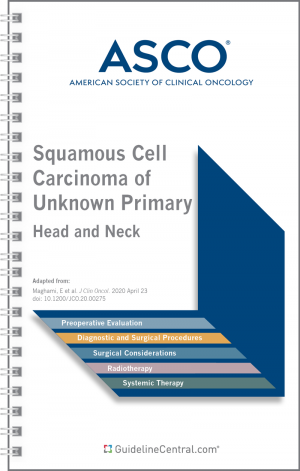
Diagnosis and Management of Squamous Cell Carcinoma of Unknown Primary in the Head and Neck
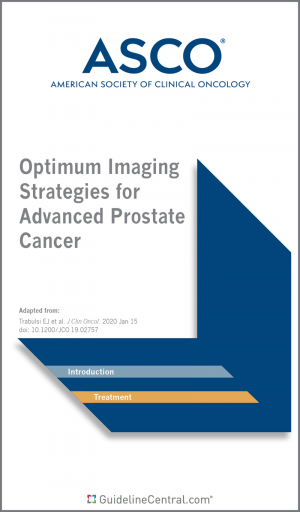
Optimum Imaging Strategies for Advanced Prostate Cancer
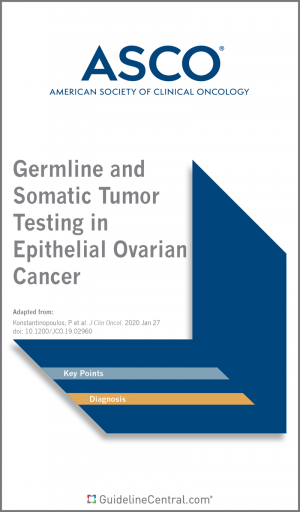
Germline and Somatic Tumor Testing in Epithelial Ovarian Cancer
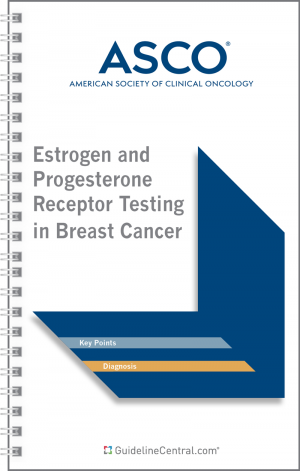
Estrogen and Progesterone Receptor Testing in Breast Cancer
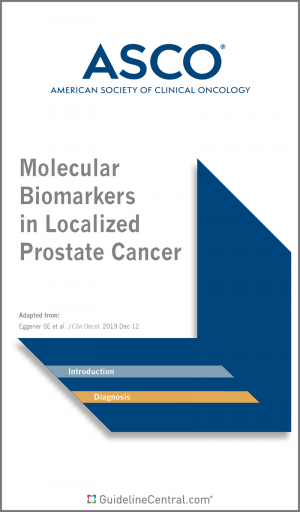
Molecular Biomarkers in Localized Prostate Cancer
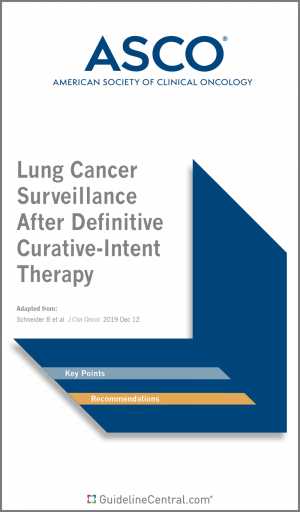
Lung Cancer Surveillance After Definitive Curative-Intent Therapy
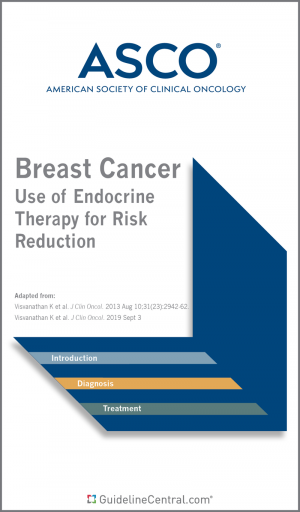
Use of Endocrine Therapy for Breast Cancer Risk Reduction
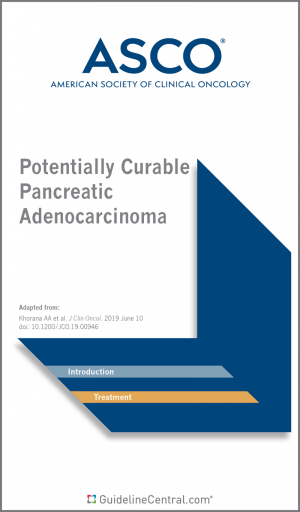
Potentially Curable Pancreatic Adenocarcinoma
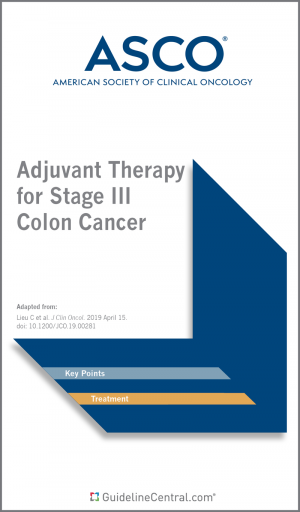
Adjuvant Therapy for Stage III Colon Cancer
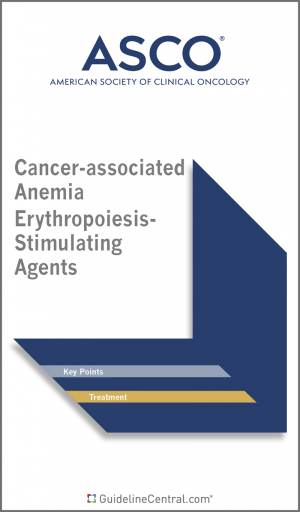
Cancer-Associated Anemia With Erythropoiesis-Stimulating Agents
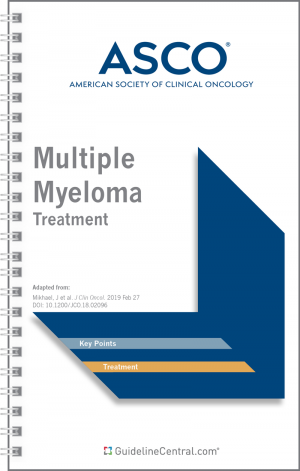
Multiple Myeloma
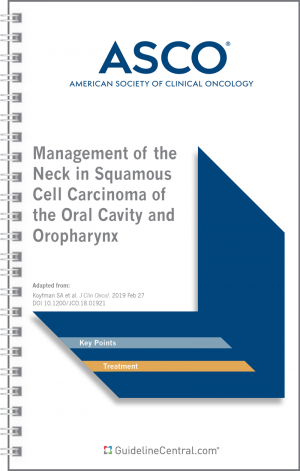
Management of the Neck in Squamous Cell Carcinoma of the Oral Cavity and Oropharynx
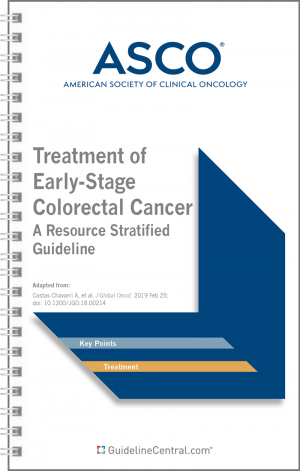
Treatment of Early-Stage Colorectal Cancer
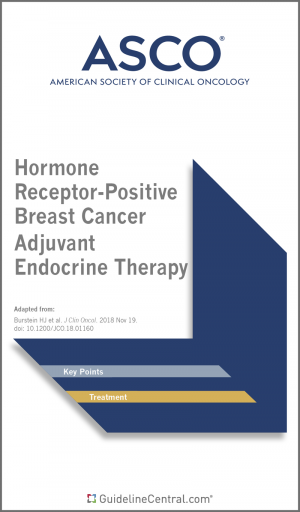
Hormone Receptor–Positive Breast Cancer Adjuvant Endocrine Therapy
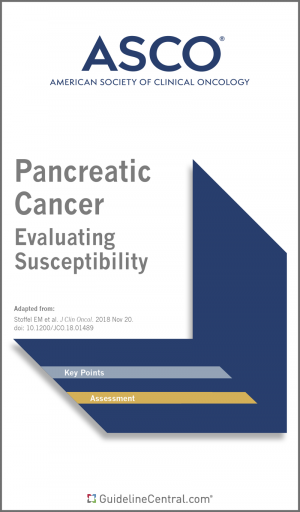
Pancreatic Cancer - Evaluating Susceptibility
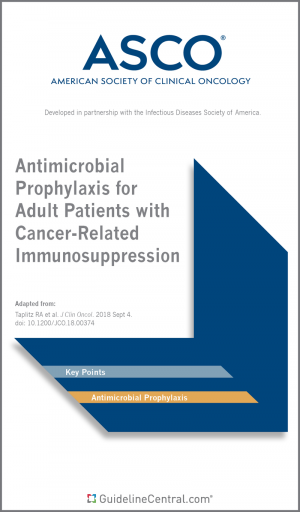
Antimicrobial Prophylaxis for Adult Patients With Cancer-Related Immunosuppression
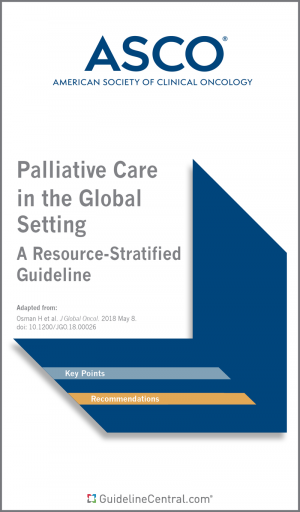
Palliative Care in the Global Setting
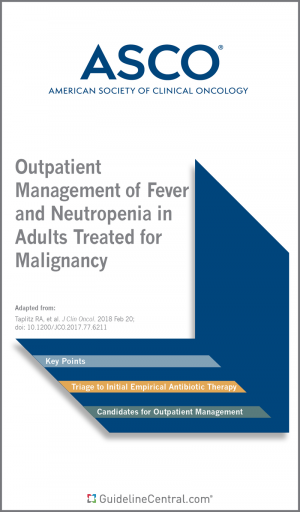
Outpatient Management of Fever and Neutropenia in Adults Treated for Malignancy
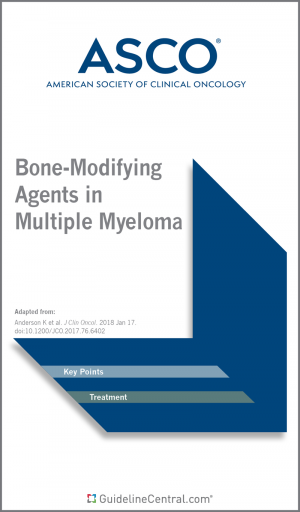
Bone-Modifying Agents in Multiple Myeloma
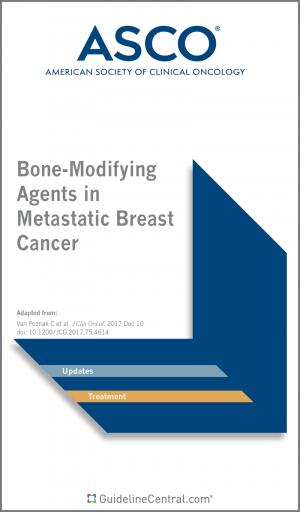
Bone-Modifying Agents in Metastatic Breast Cancer
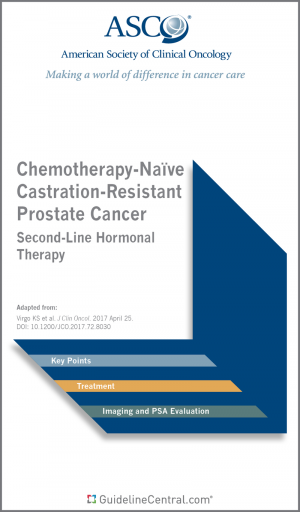
Chemotherapy-Naïve Castration-Resistant Prostate Cancer
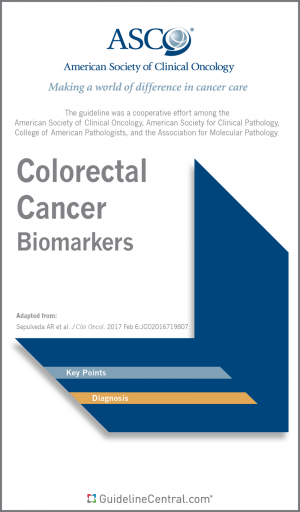
Colorectal Cancer Biomarkers
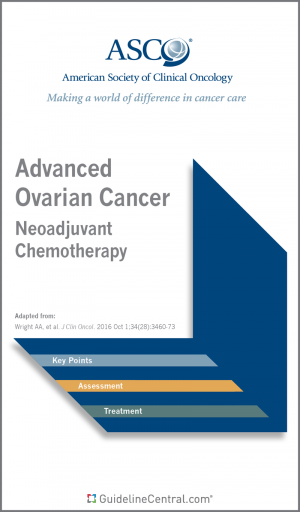
Neoadjuvant Chemotherapy for Newly Diagnosed, Advanced Ovarian Cancer
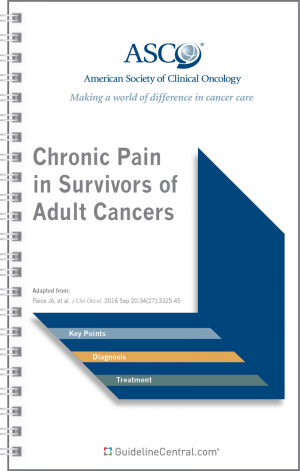
Chronic Pain in Survivors of Adult Cancers
